14 de fevereiro de 2026
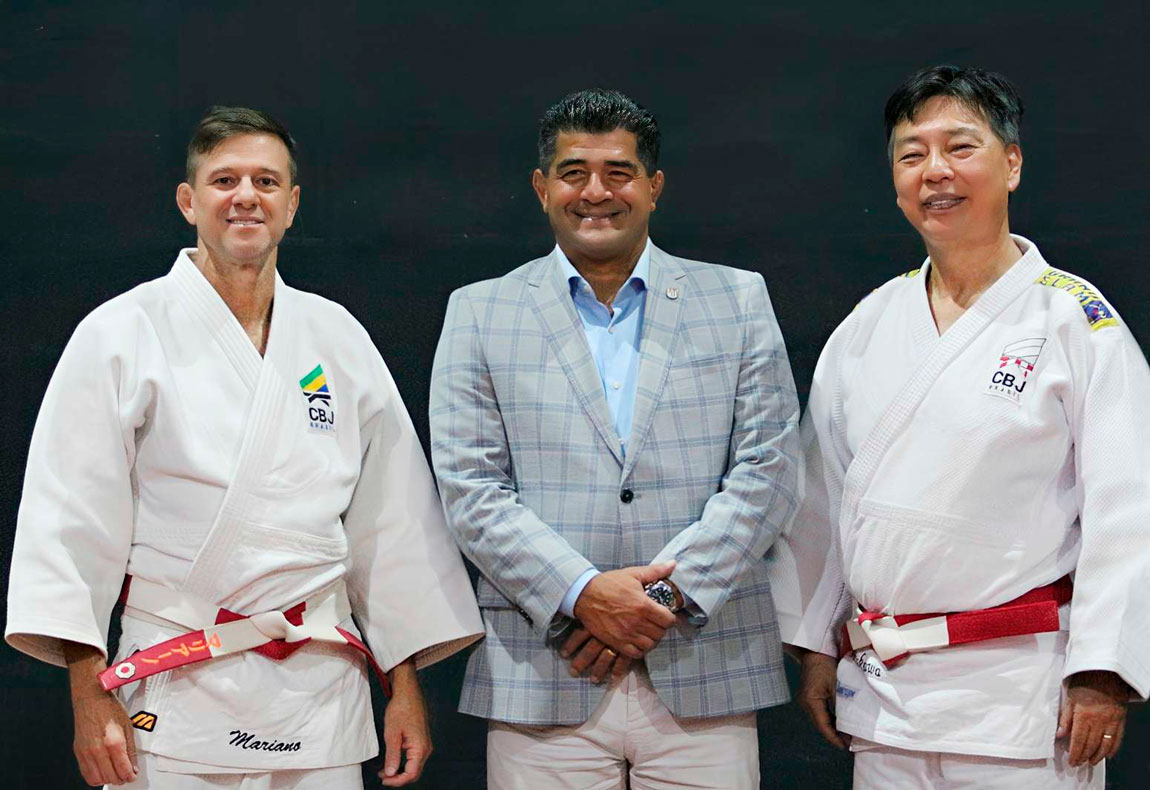
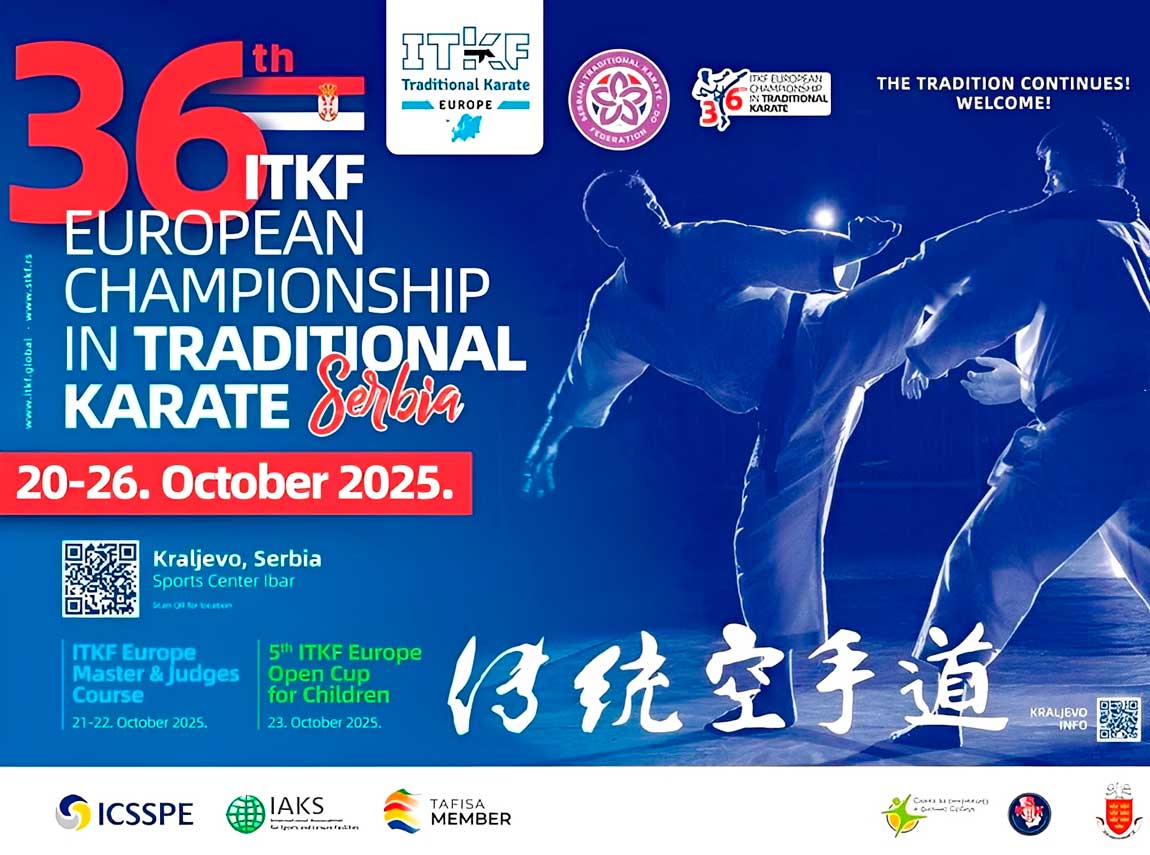
From October 20 to 26, 2025, the city of Kraljevo, Serbia, became the epicenter of traditional karate as it welcomed the 36th ITKF European Championship. The event brought together more than 600 athletes and registered 1,624 entries overall. Running alongside it was the 5th European Children’s and ParaKarate Open Cup, making this the largest event ever organized under ITKF Europe.
Held at the Ibar Sports Center, the championship welcomed delegations from 15 countries: Serbia, Romania, Poland, Portugal, Italy, Germany, Bosnia and Herzegovina, Slovenia, the Czech Republic, the United Kingdom, France, the Netherlands, Israel, Armenia, and Egypt (as a guest nation). The event was organized by the Serbian Traditional Karate Federation (STKF), with the support of ITKF Europe, and featured the presence of key international leaders.
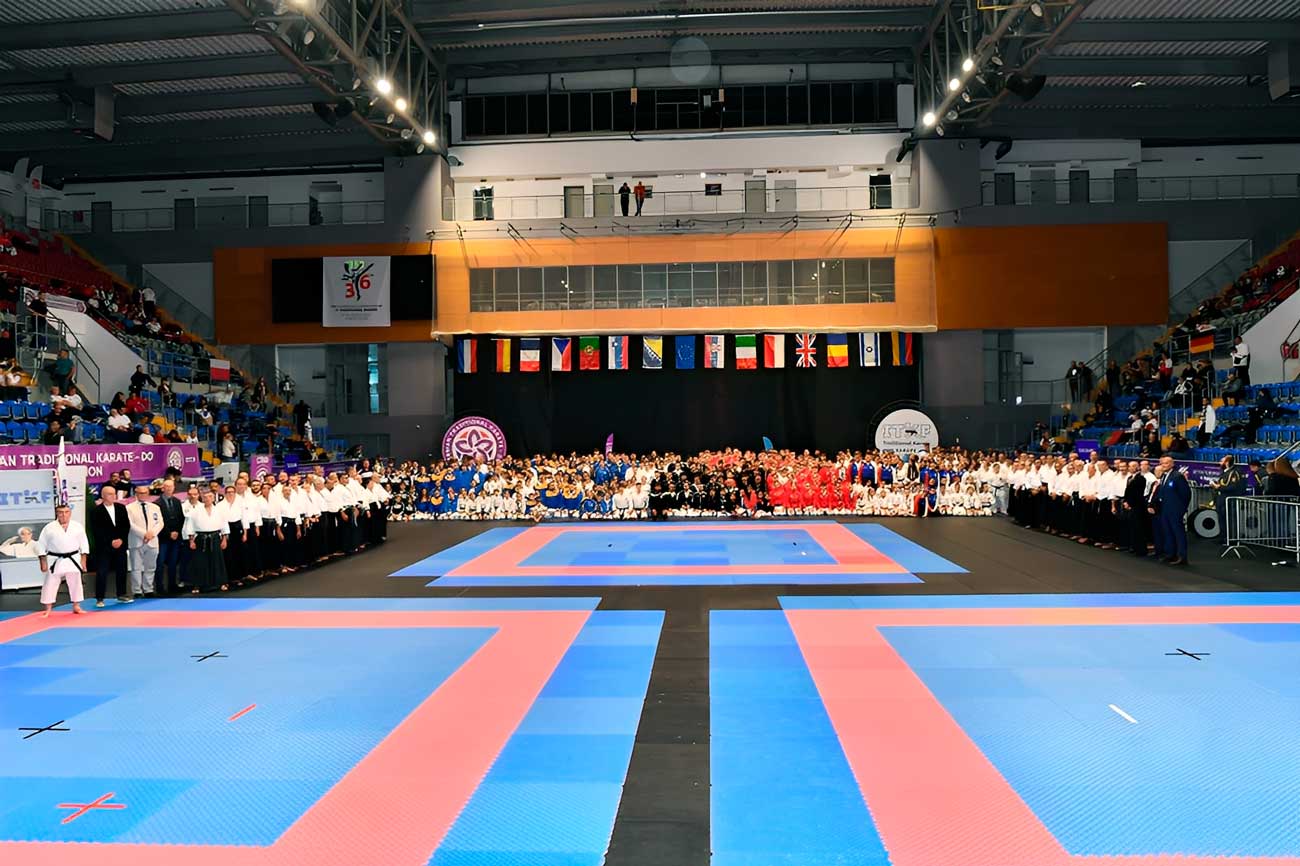
Athletes, referees, and officials gathered for a landmark moment in ITKF Europe’s history © STKF
Among them were Masters Dino and Eligio Contarelli (Italy), Roman Pavlovič (President of ITKF Europe), Fernando Silva (Vice President of ITKF Europe), Eyal Nir (Secretary General of ITKF Europe), Ramy El Mekawy (President of ITKF Africa), Cornel Musat (Romania), Anna Kulczynska (Poland), Manfred Schmoigl (Germany), as well as Miloš Simović (Deputy Mayor of Kraljevo) and Zoran Jakovljević, President of the Serbian Traditional Karate Federation and host of the event.
The governance structure of ITKF Europe proved to be one of the event’s greatest strengths. The technical, refereeing, tournament, medical, and event committees operated in perfect coordination, each playing a decisive role in consolidating technical and administrative standards.
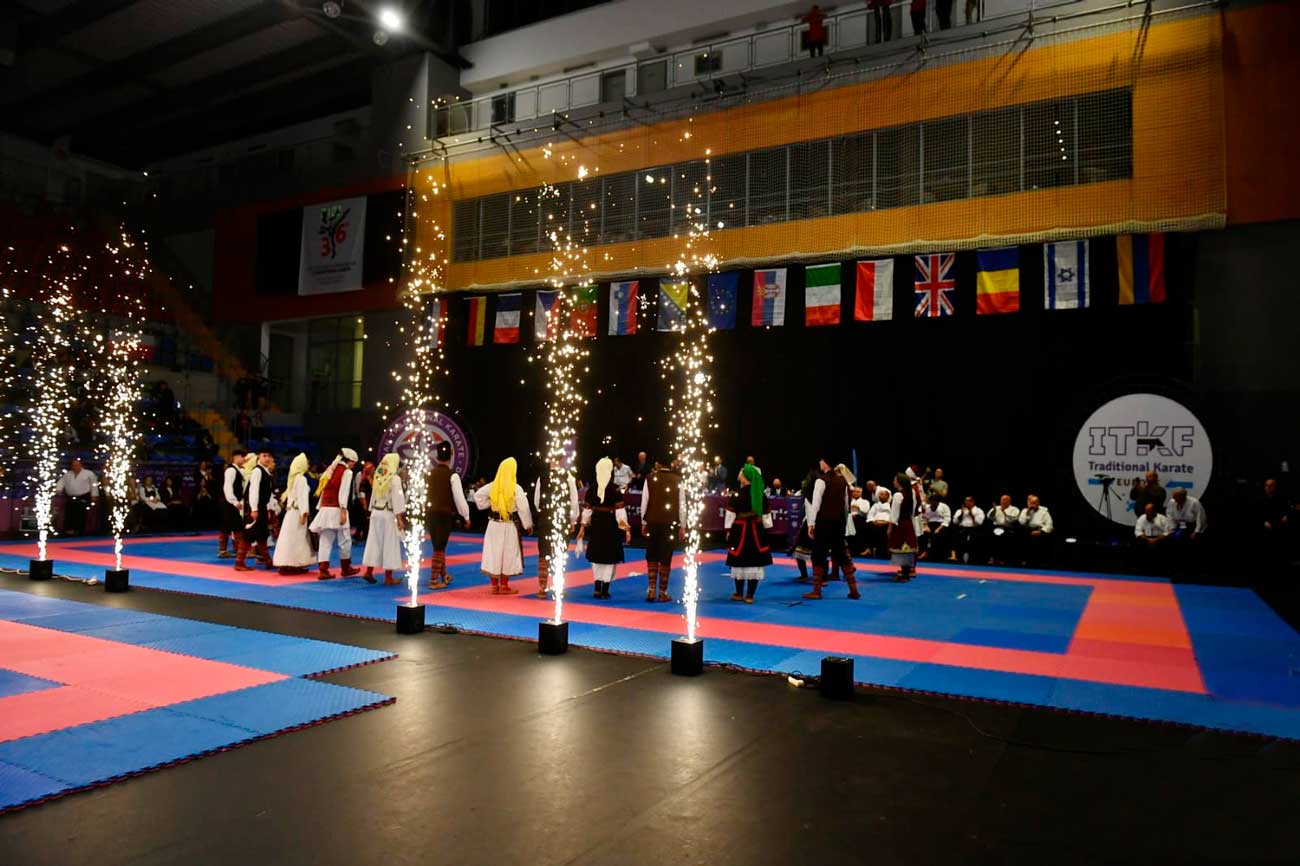
The Masters Course for black belts and referees elevated the standardization process and empowered new technical leaders across Europe, further strengthening the ITKF DAN certification program.
“The 36th European Championship consolidated something greater than results: it strengthened a shared culture of technical excellence, ethics, and service to Budō. Kraljevo reminded us that tradition is movement — and movement is a commitment to the next step,” said Roman Pavlovič, President of ITKF Europe.
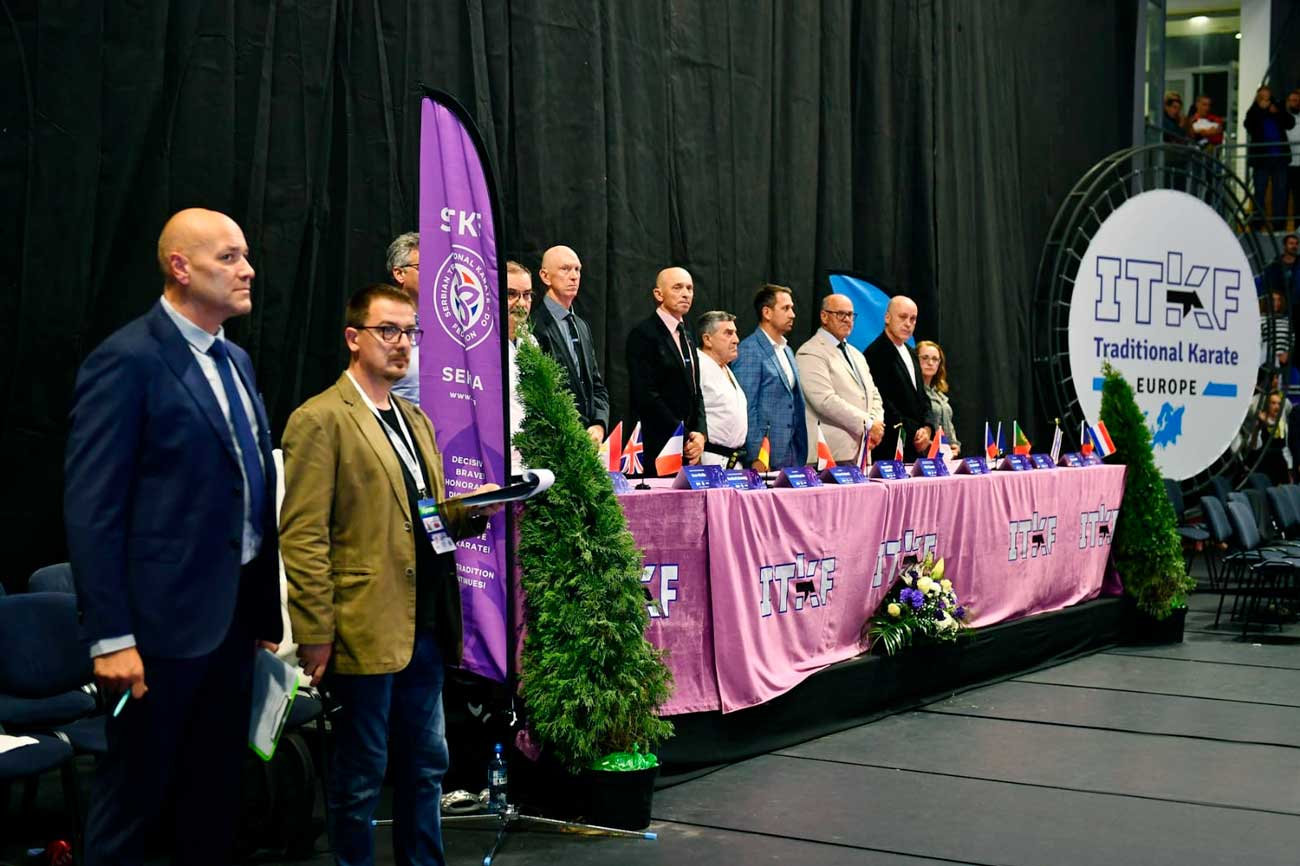
Officials stand in a moment of respect during the opening ceremony, marking the formal beginning of the championship © STKF
One of the most significant highlights of this edition was the full integration of ParaKarate into the official program, both in the European Championship and the Open Cup. The event embodied inclusion at its core, celebrating the human and technical potential of athletes with disabilities and reaffirming ITKF’s commitment to an accessible and human-centered development pathway.
The same spirit of excellence and unity was visible among the nearly 300 young athletes competing in the 5th European Open Cup, where kihon, kata, and kumite contests showcased the strength of the new generations and the organization’s dedication to comprehensive development from early childhood onward.
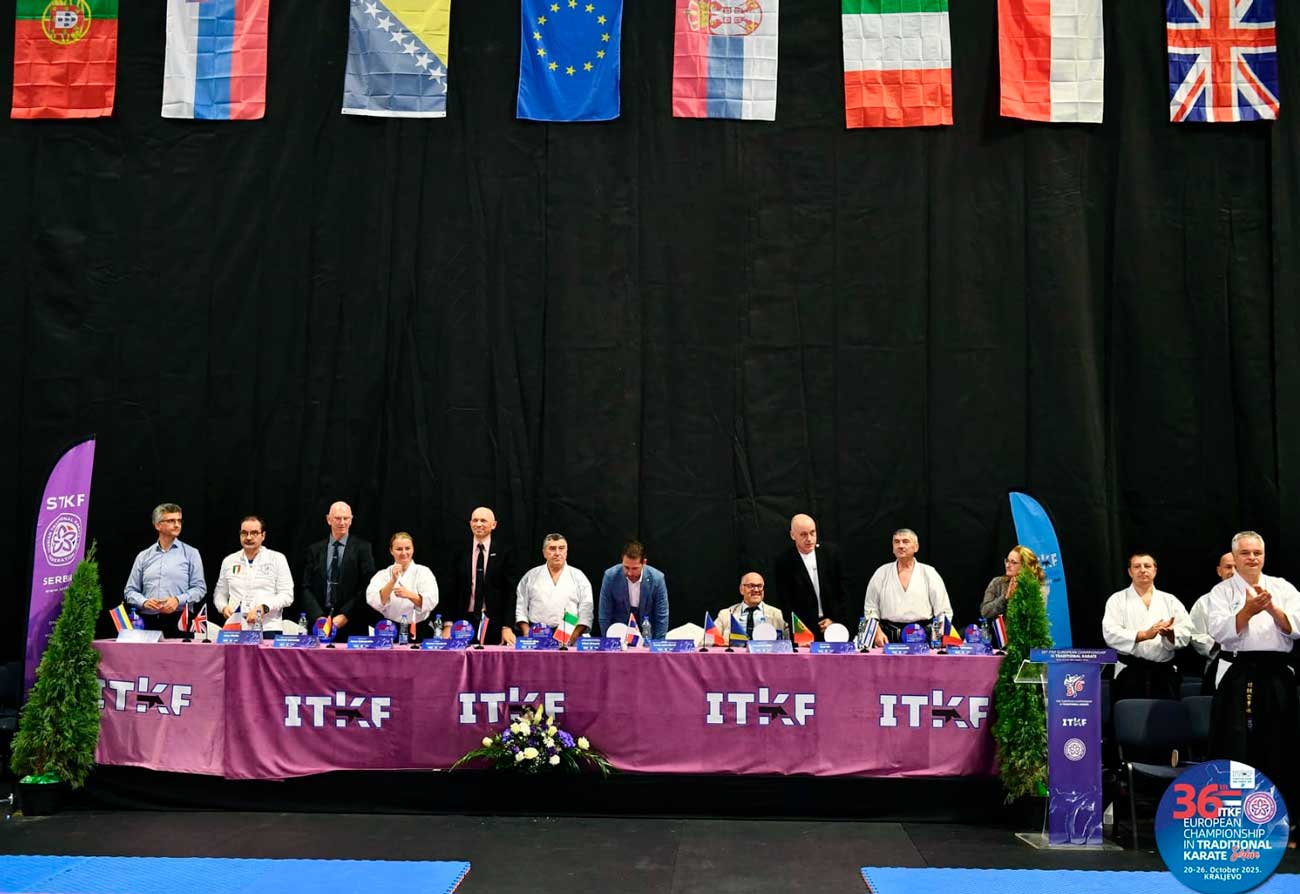
The head table brought together representatives from 15 ITKF Europe nations, Egypt, and Serbia’s Traditional Karate Federation—symbolizing the partnership that made the largest continental championship in ITKF history possible © STKF
In his address, host Zoran Jakovljević delivered one of the most emotional speeches of the championship, emphasizing the collective effort behind its success.
“You transformed Kraljevo into the European capital of traditional karate. The energy, respect, and friendship we witnessed here show that ITKF is more than a sport — it is a community built on honor, discipline, and fraternity. I am certain that we achieved our goal together: we restored the reputation of traditional karate in Serbia and showed the world that we are a solid federation, guided by strong values and extraordinary potential.”
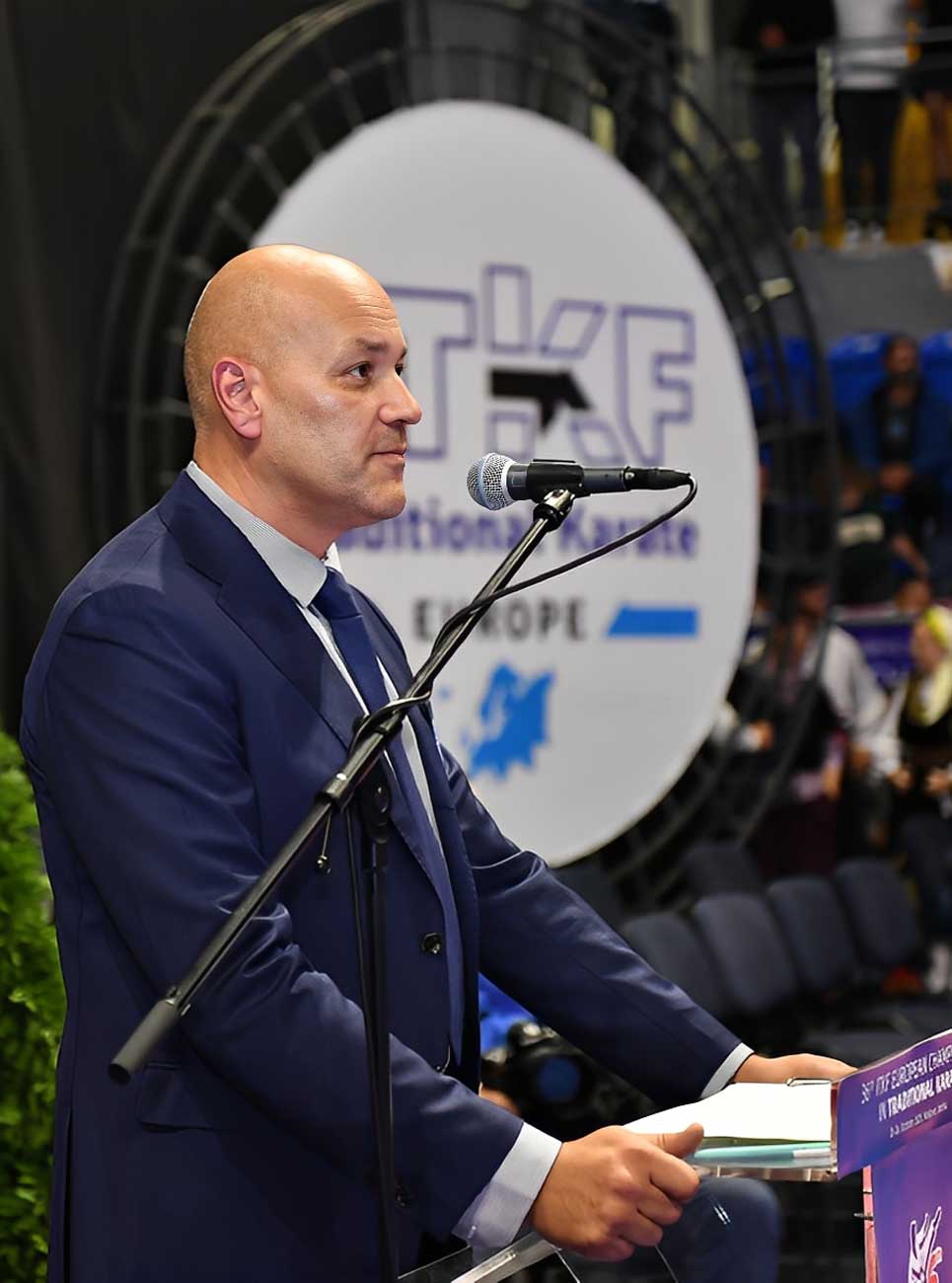
Zoran Jakovljević, president of the Serbian Traditional Karate Federation, delivers his address as host of the event © STKF
His message of gratitude and unity resonated throughout the arena, reinforcing the spirit of belonging that drives ITKF Global in its process of expansion and consolidation across Europe.
At the closing of the championship, Roman Pavlovič captured the essence of this new chapter with words that echoed across the venue.“Kraljevo was more than an event — it was a rehearsal for the future. Here, we standardized criteria, trained people, and strengthened bonds. This is how a confederation grows: through the human strength that sustains it and the method that guides each step.”
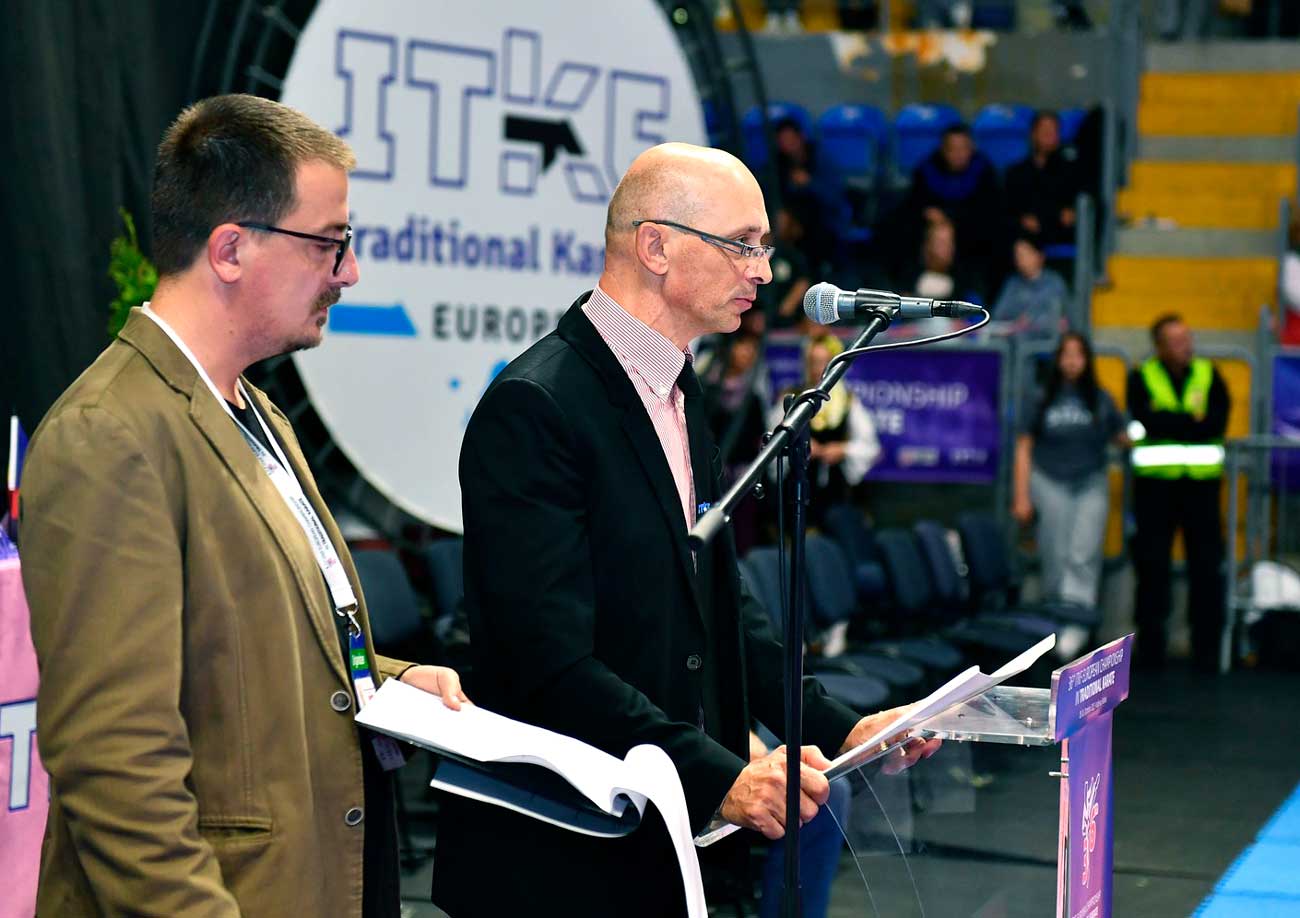
Roman Pavlovič, president of ITKF Europe, delivers his address during the opening ceremony alongside his translator, Nikola Lasica © STKF
With enhanced governance, technical integration, and new performance indicators, ITKF Europe leaves Serbia with a shared certainty: tradition remains alive, modern, and in motion.
With expressive results and a remarkable atmosphere of harmony among the 15 participating nations, the 36th ITKF European Traditional Karate Championship marked a new chapter in the continent’s history of the discipline.
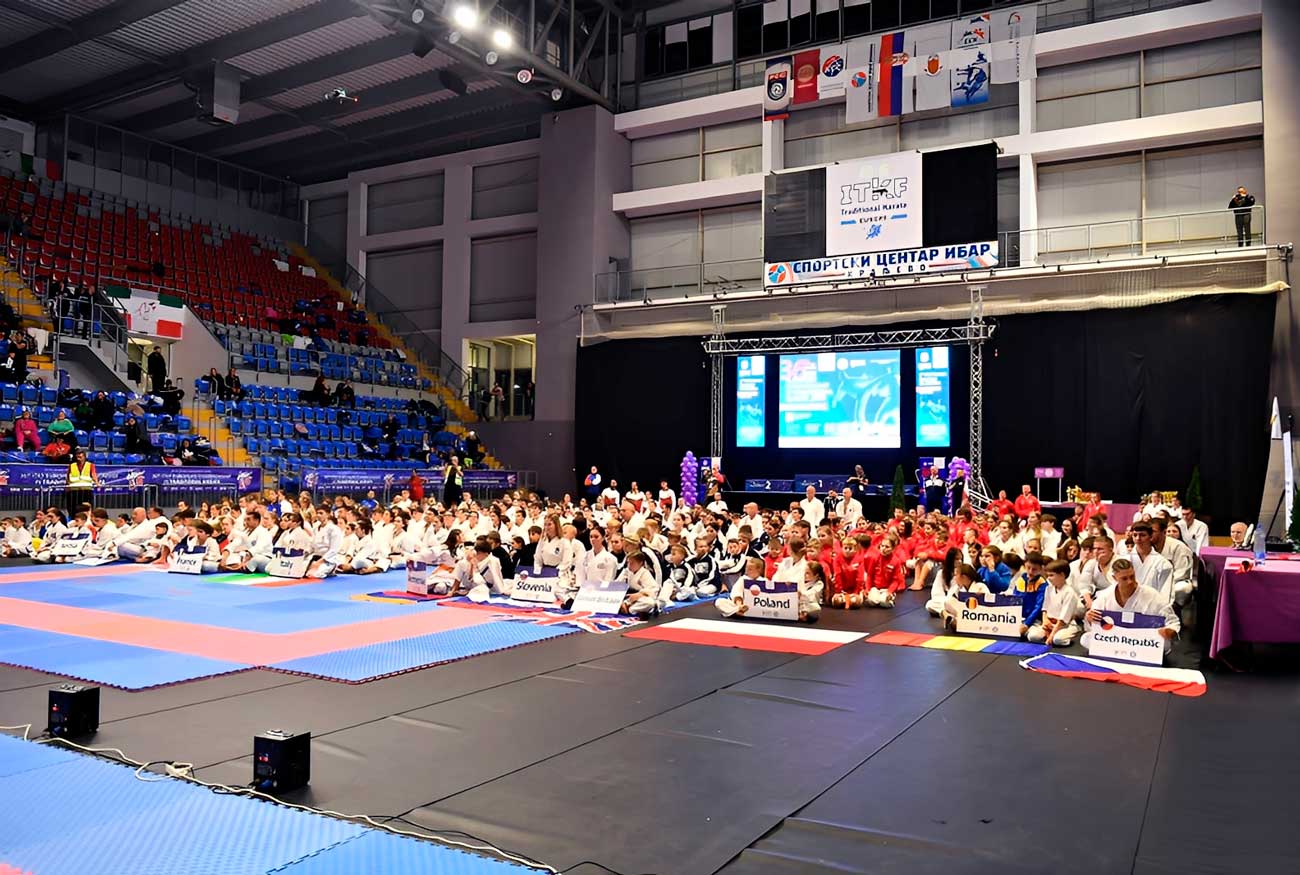
National team representatives follow the opening ceremony © STKF
The event not only reaffirmed the leadership of Roman Pavlovič in Europe but also strengthened the global vision of Chairman Gilberto Gaertner, who leads the international ITKF based on principles of unity, legitimacy, and human development. Kraljevo will be remembered not only as the host of a major tournament, but as a symbol of a stronger, more cohesive Europe committed to the true spirit of Budō.
With visible emotion, Zoran Jakovljević expressed his gratitude for the international response to the Championship.
“Each athlete, referee, and official who came to Kraljevo brought a spark of energy, enthusiasm, and love for traditional karate. You transformed our city into a true home of unity, respect, and the family spirit of karate.”
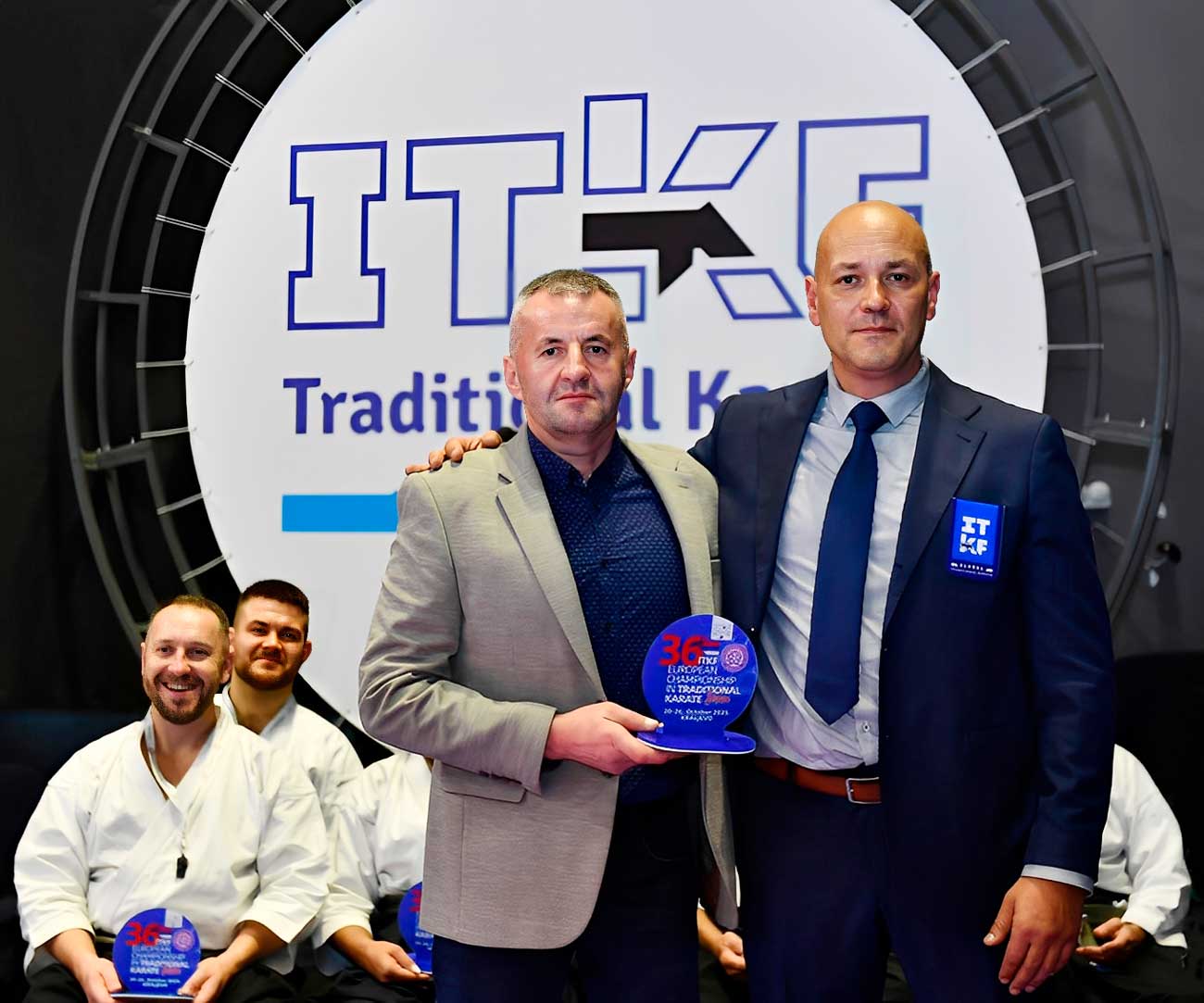
Zoran Jakovljević pays tribute and presents an award to Lieutenant Colonel Vinko Tomović, assistant commander © STKF
He highlighted the human dimension of the event. “My heart is filled with indescribable joy. Each of you gave me strength and faith to continue. Our only goal was to restore the reputation of traditional karate in Serbia and show the world that we are a solid federation grounded in values and human potential.”
Deeply moved, he concluded. “Together, we proved that karate is much more than a sport — it is community, discipline, and friendship. Our athletes were true ambassadors, inspiring everyone with courage, technique, and fair play. What we lived in Kraljevo will remain forever in our hearts as days of harmony, friendship, and strength of spirit.”
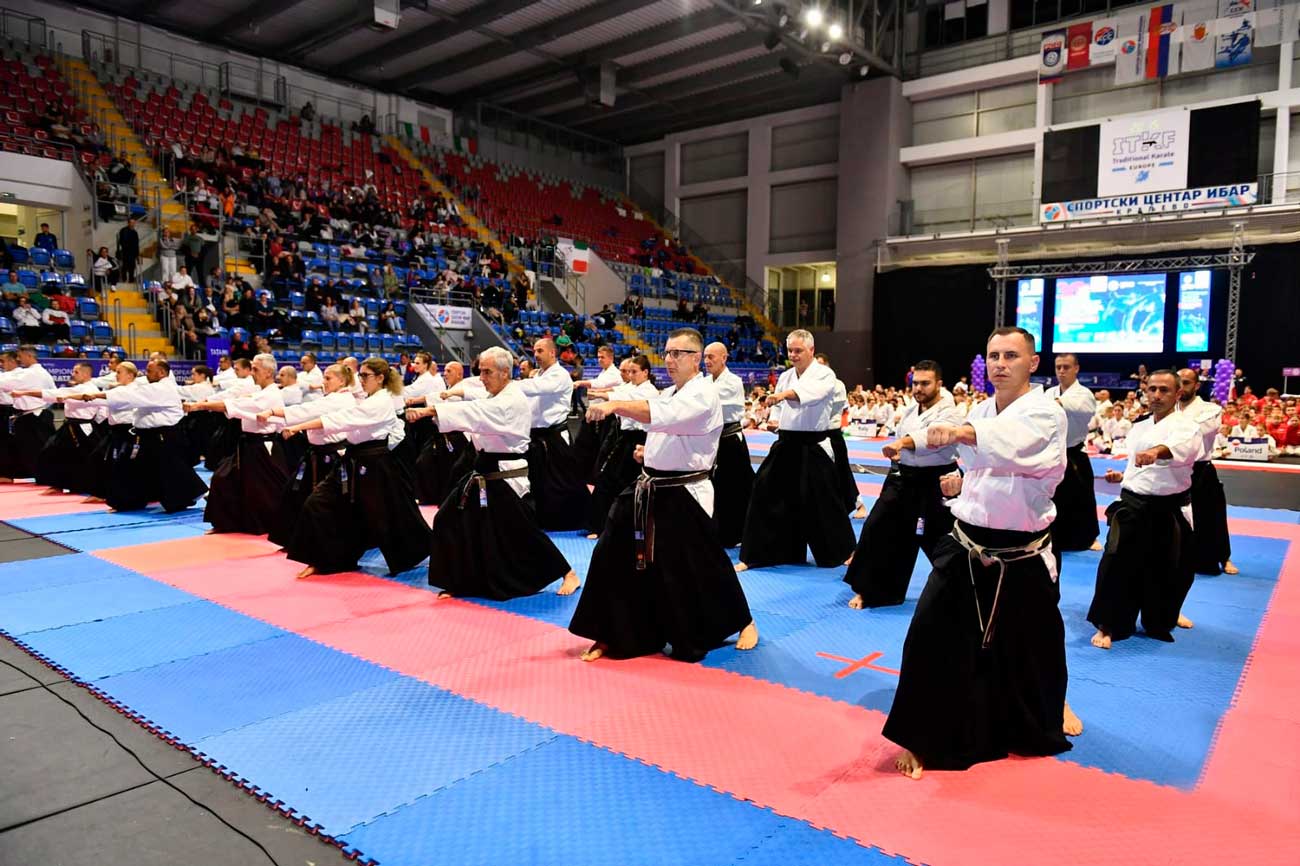
ITKF referees perform a kata demonstration, symbolizing technical unity and respect for traditional karate values © STKF
Romania reaffirmed itself as the leading power in European traditional karate, winning the overall title of the 36th ITKF European Championship in Kraljevo with a significant margin in gold medals. With 22 continental titles, the team displayed excellence across all disciplines — kata, kumite, en-bu, and fuku-go — combining refined technique, tactical consistency, and strong team spirit.
The Romanian performance was overwhelming: 45 medals in total, with 22 gold, 9 silver, and 14 bronze — a result that confirms the technical supremacy of the squad led by the multi-medalist coach Cornel Musat.
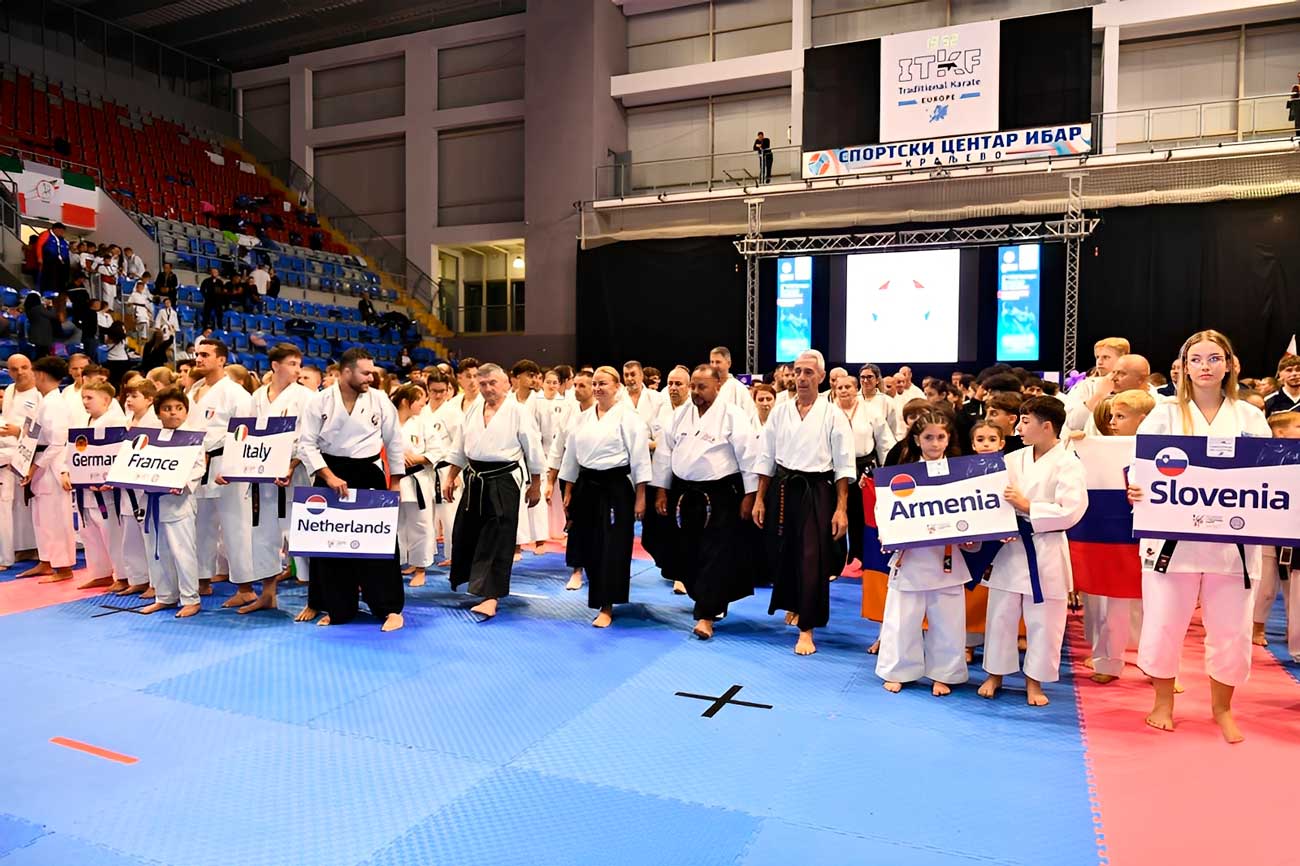
Teams lined up during the opening ceremony © STKF
Poland, which finished in second place, reaffirmed its historic strength in Europe, especially in individual and team kata. The nation once again delivered the high technical standard that has made it a pillar of the ITKF for decades. Its balanced performance — 11 gold, 14 silver and 19 bronze medals, totaling 44 — reflects the solidity of its school and the methodological rigor transmitted across generations of masters.
Armenia, in third place, delivered one of the most pleasant surprises of the tournament. With 7 gold, 9 silver and 2 bronze medals, its athletes competed with remarkable energy and fighting spirit, evidencing clear technical evolution and the consolidation of a new competitive cycle.
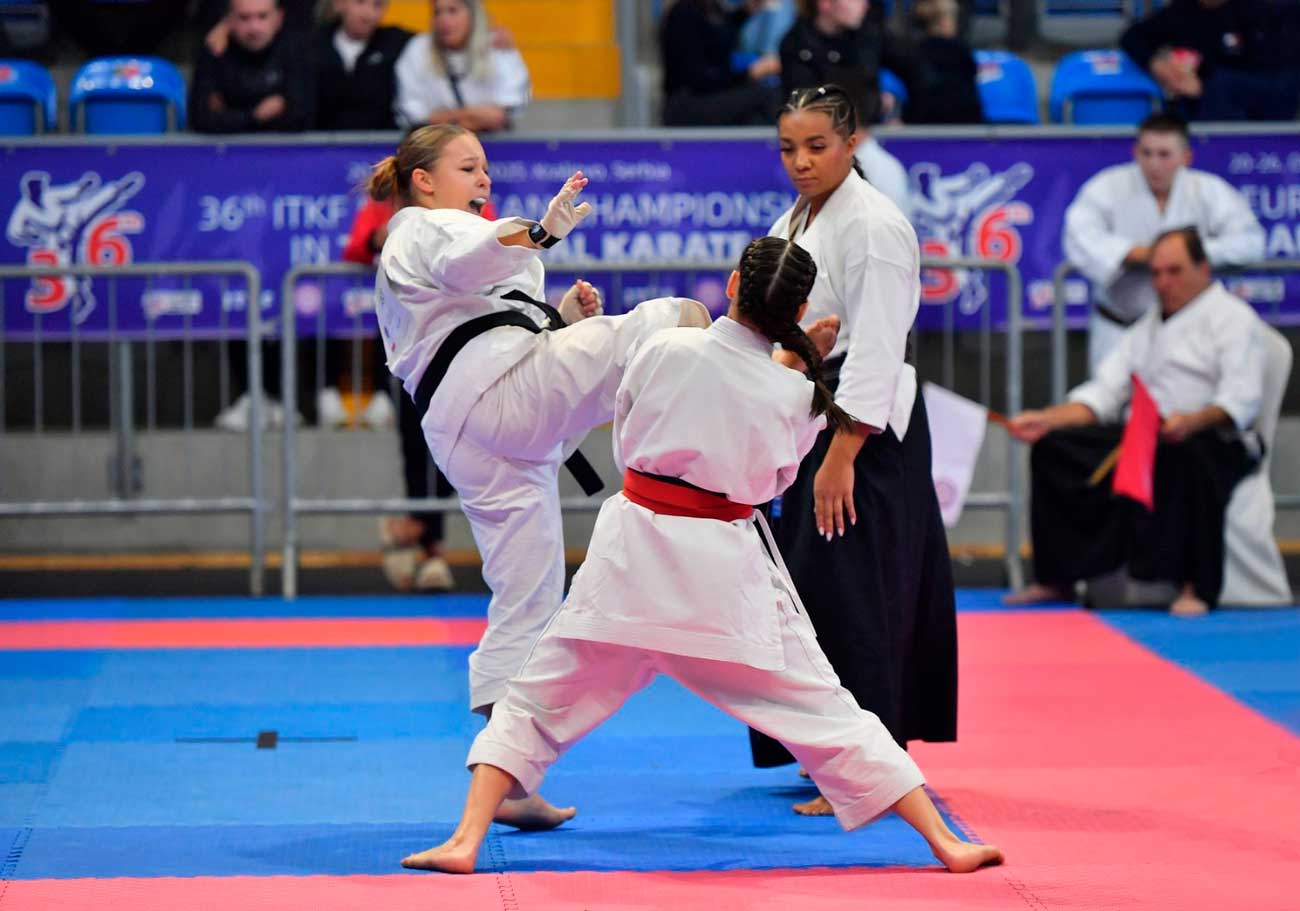
Women’s kumite showcases the strong technical foundation of ITKF’s younger divisions © STKF
In fourth place, Portugal produced one of its most consistent campaigns in recent years, stepping onto the podium 19 times — with 6 gold, 5 silver and 8 bronze medals. The country demonstrated tactical maturity and organizational excellence, the result of long-term technical development led by its clubs and by the Traditional Budô Federation of Portugal.
Closing the top five, Serbia defended its pride as host with determination. With 5 gold, 3 silver and 3 bronze medals, totaling 11 podiums, the home delegation reaffirmed its tradition and the strength of its foundational work, standing out particularly in kumite and team events.
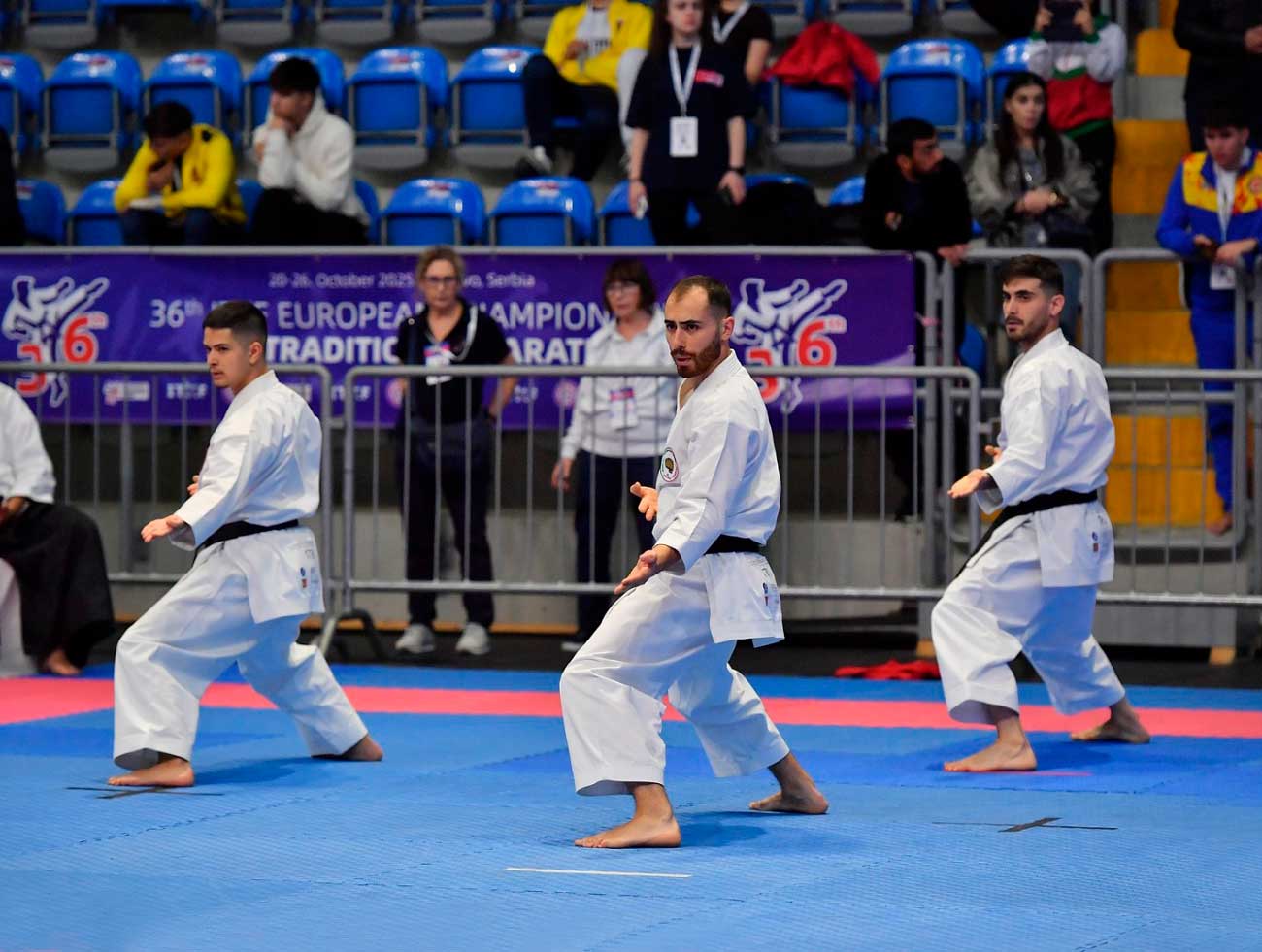
A kata team displays high-level technique and synchronization in the European championship © STKF
The overall medal table not only highlighted Romania’s supremacy but also showcased the rise of new technical powers — a testament to the success of the standardization and technical-exchange program implemented by ITKF Global in recent years.
The level of competition was further elevated by strong performances from athletes representing Italy, Israel, France, the Netherlands, Germany, Slovenia, Czech Republic, Bosnia and Herzegovina, the United Kingdom and Egypt. Their participation ensured a balanced and multicultural tournament, deeply aligned with the values of Budō.
More than reaffirming Romania’s dominance, the European Championship in Kraljevo revealed a landscape of growing parity among ITKF nations — confirming the impact of the integration and development strategy led by Chairman Gilberto Gaertner.
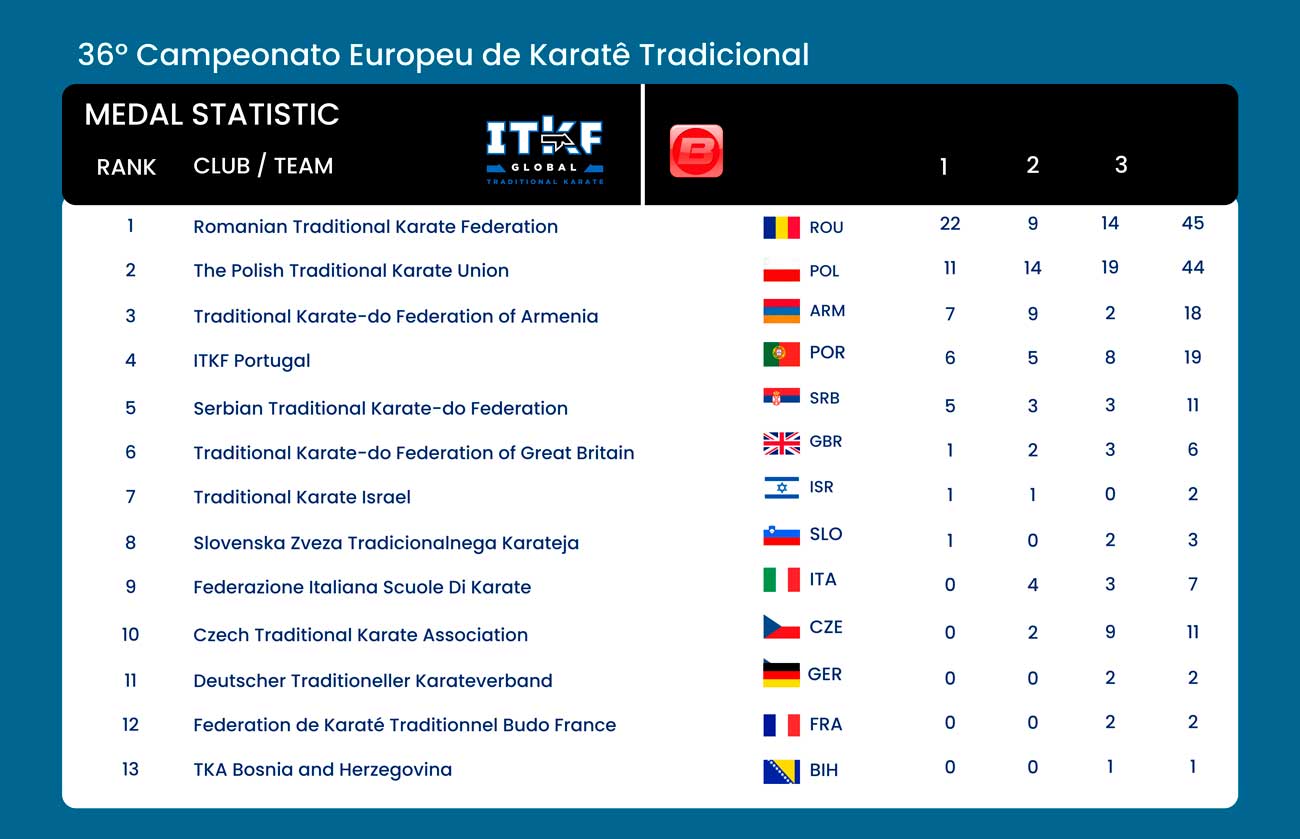
At the 5th ITKF European Children’s Open Cup, Poland once again confirmed its continental supremacy, leading the medal table with 6 gold, 4 silver and 12 bronze medals (22 total). The young Polish athletes demonstrated outstanding discipline and technical level, reflecting the grassroots structure that has sustained the nation’s leadership in traditional karate for decades.
Romania secured second place with 5 gold, 8 silver and 3 bronze medals (16 total), reaffirming the strength of its pedagogical system and its ability to develop young athletes with solid technique and competitive spirit.
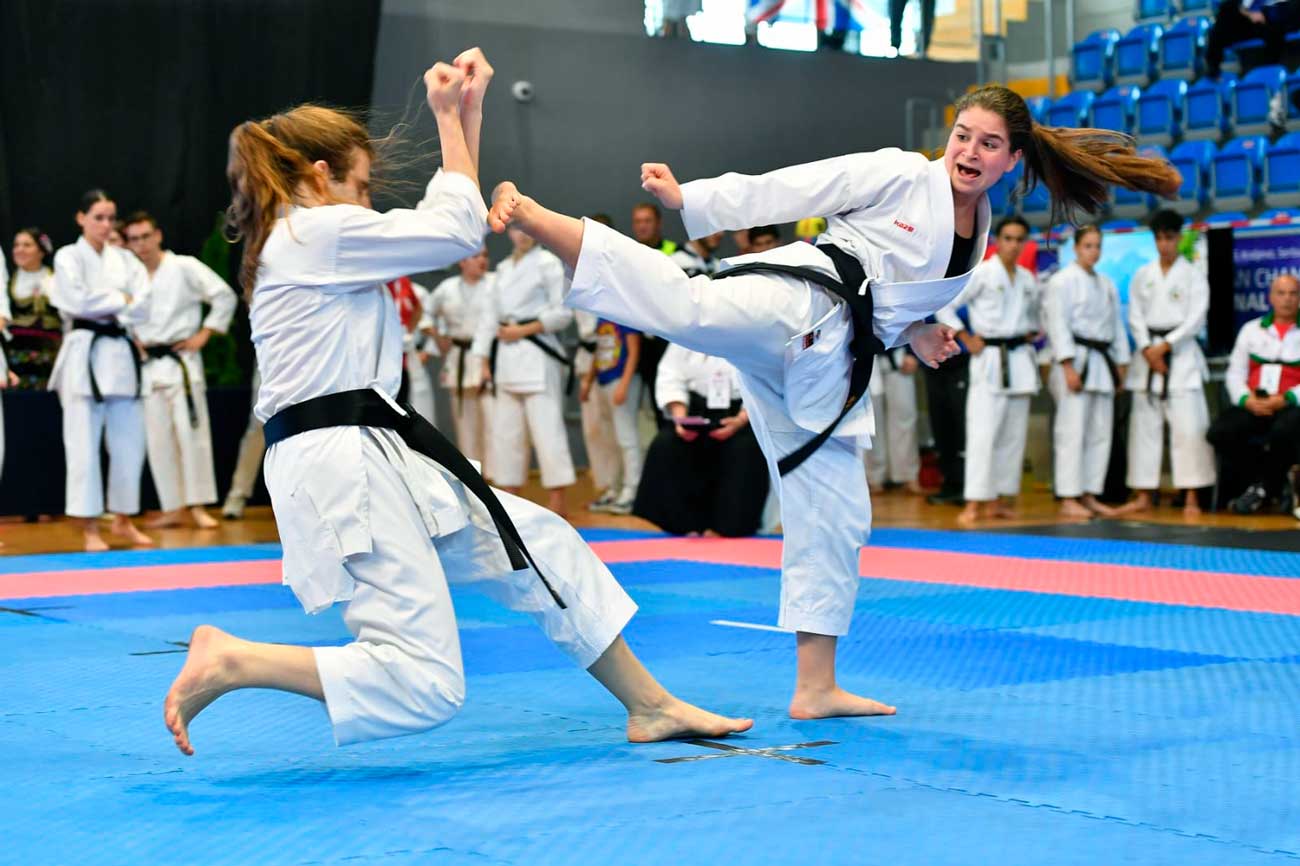
Electrifying matches energized the competition © STKF
Armenia finished third, with 4 gold, 2 silver and 4 bronze medals, confirming the rise of a new generation full of energy and determination — a promising sign of continued growth.
Portugal took fourth place with 3 gold, 3 silver and 3 bronze medals, showing consistency in both kata and kumite and reflecting the country’s growing investment in youth development.
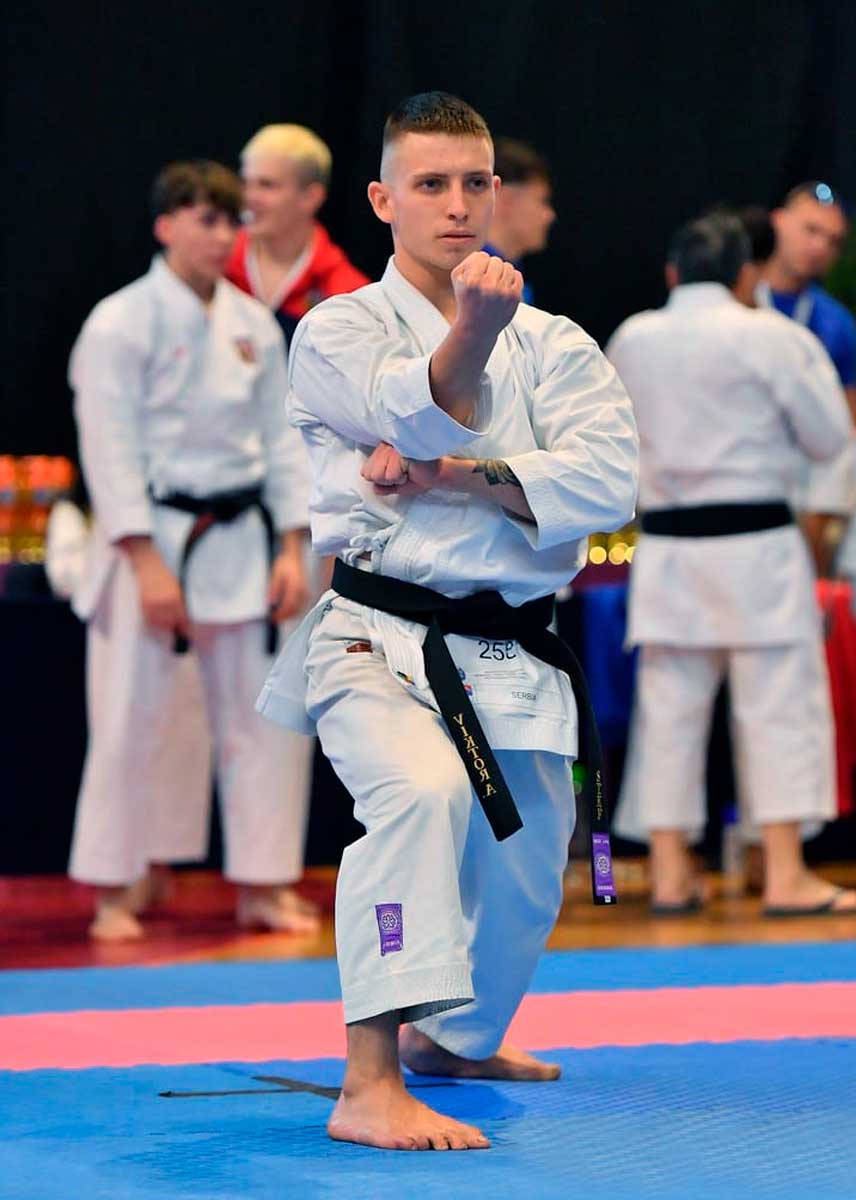
A kata performance highlights the precision of fundamentals that distinguish ITKF traditional karate © STKF
Host nation Serbia closed the top five with 2 gold, 2 silver and 5 bronze medals, maintaining a strong presence on the podium and demonstrating the breadth and maturity of its formative program.
More than just numbers, the Children’s Open Cup represented the future of traditional karate — days of learning, friendship and discipline, lived under the spirit of Budō and aligned with the ITKF’s mission: to form human beings with technique, ethics and heart.
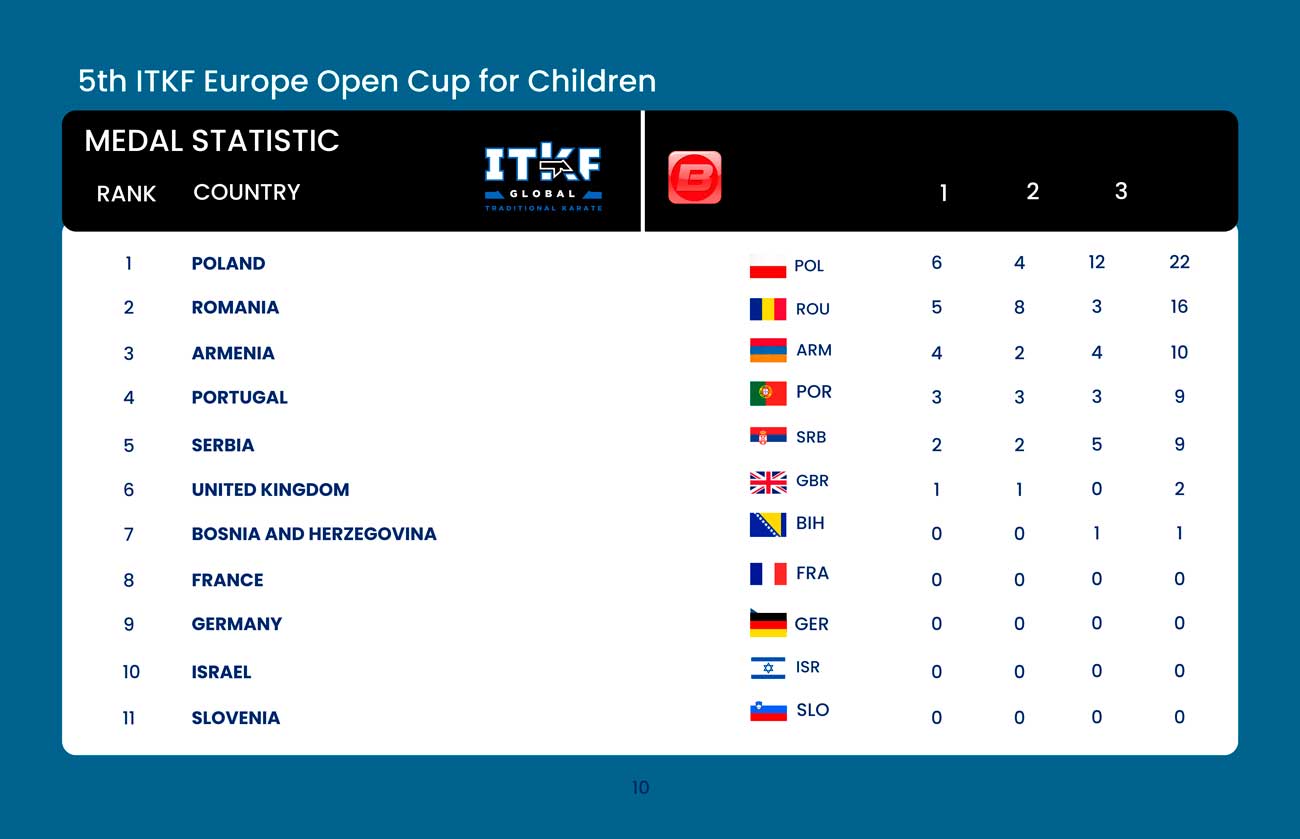
Poland reaffirmed its supremacy in European Para Karate by capturing the overall team title at the Cup held in Kraljevo.
With 6 gold, 4 silver, and 12 bronze medals — a total of 22 podium finishes — the Polish delegation once again demonstrated the strength of its inclusive program, which combines technical rigor, adapted methodology, and a strong social commitment to athletes with disabilities. Their performance reflected a well-established structure fully aligned with the international guidelines of ITKF Global.
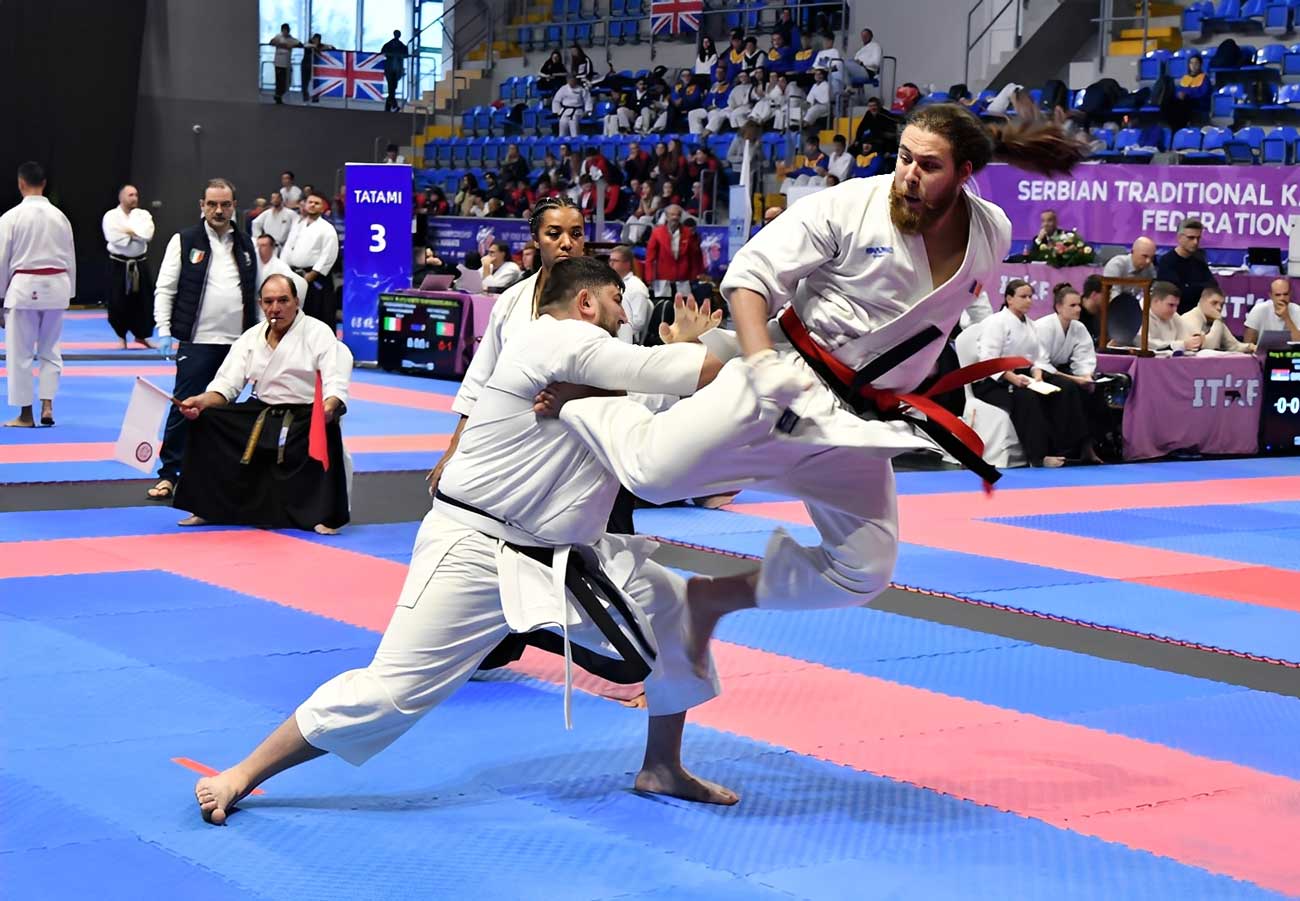
A dynamic match showcases the technical effectiveness and rhythm unique to ITKF traditional karate © STKF
Romania finished in second place with 5 gold, 8 silver, and 3 bronze medals (16 total). The Romanian team displayed a balanced approach, blending technical excellence with specific para karate preparation — further proof of the country’s continuous progress across all competitive fronts.
Armenia secured third place, earning 4 gold, 2 silver, and 4 bronze medals (10 total). The Armenian delegation maintained the high standard shown throughout the event, combining tactical evolution with strong competitive energy.
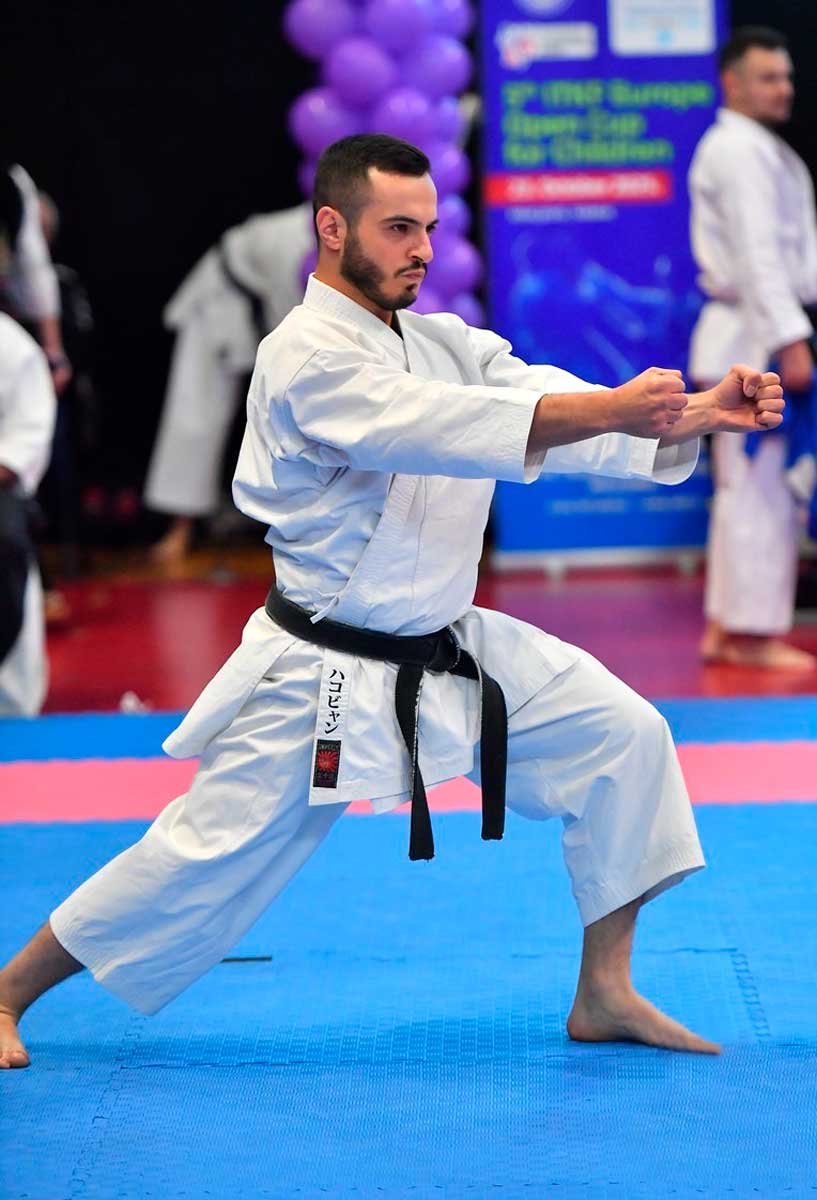
Kata execution demonstrates the direct connection between kihon precision and the technical effectiveness promoted by ITKF Global © STKF
Portugal claimed fourth place with 3 gold, 3 silver, and 3 bronze medals (9 total). The Portuguese performance reflects the steady growth of its inclusion-oriented programs, which for years have integrated the philosophical foundations of traditional karate with adapted training methodologies.
Serbia, the host nation, also finished with 9 medals (2 gold, 2 silver, and 5 bronze). The Serbian team showcased a solid structure and an increasing commitment to the development of para karate. Their performance once again highlighted the organizational capacity of STKF and the country’s dedication to inclusive sport.
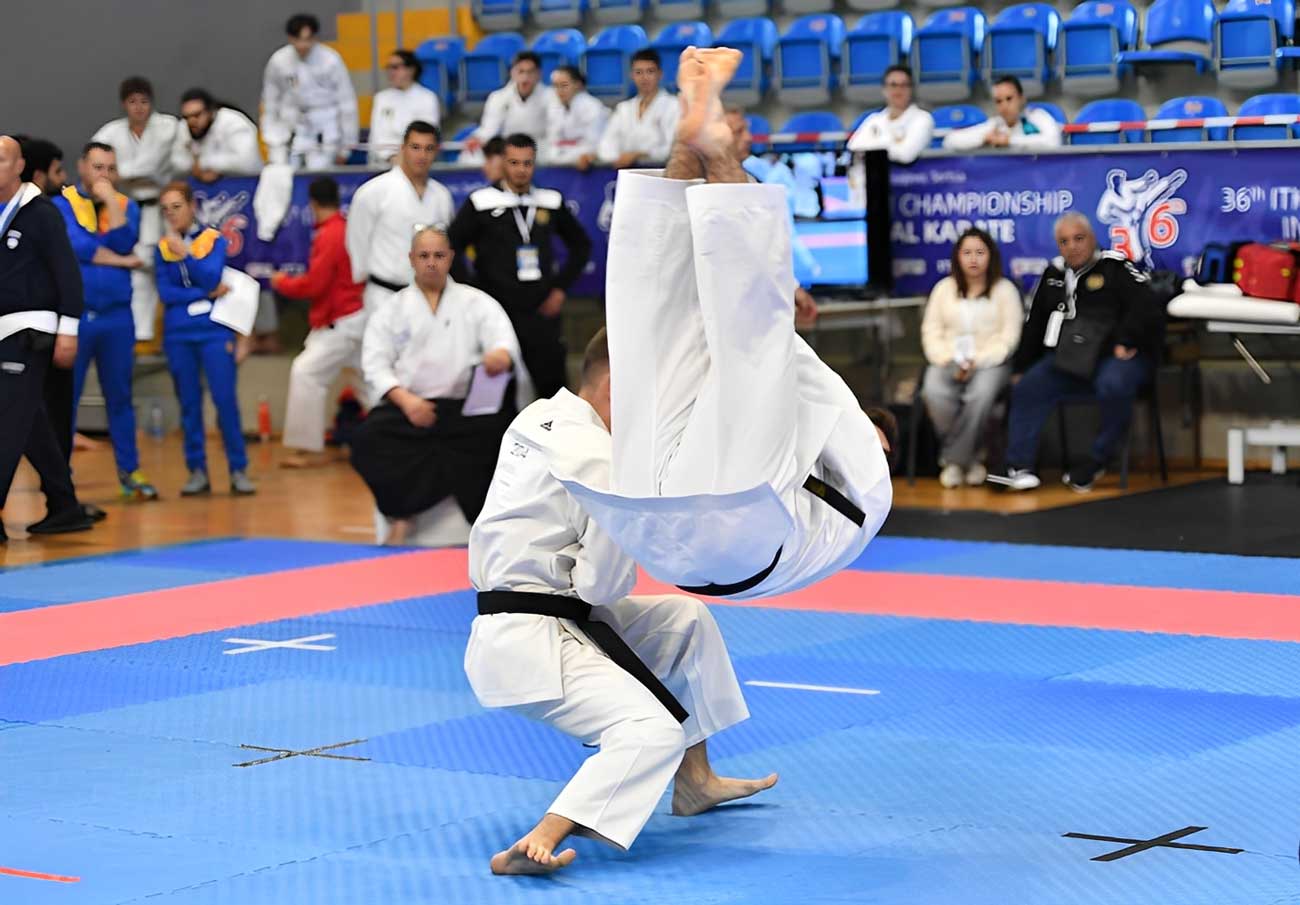
Intense shiai kumite bouts animated the European Championship © STKF
The United Kingdom, with 1 gold and 1 silver, and Bosnia and Herzegovina, with 1 bronze, completed the medal table, contributing to the plural and inclusive atmosphere that defines para karate across Europe.
Collectively, the performances confirmed the technical, pedagogical, human, and inclusive expansion of para karate in Europe, underscoring the success of ITKF Global’s integration, development, and standardization strategy under the leadership of chairman Professor Gilberto Gaertner.
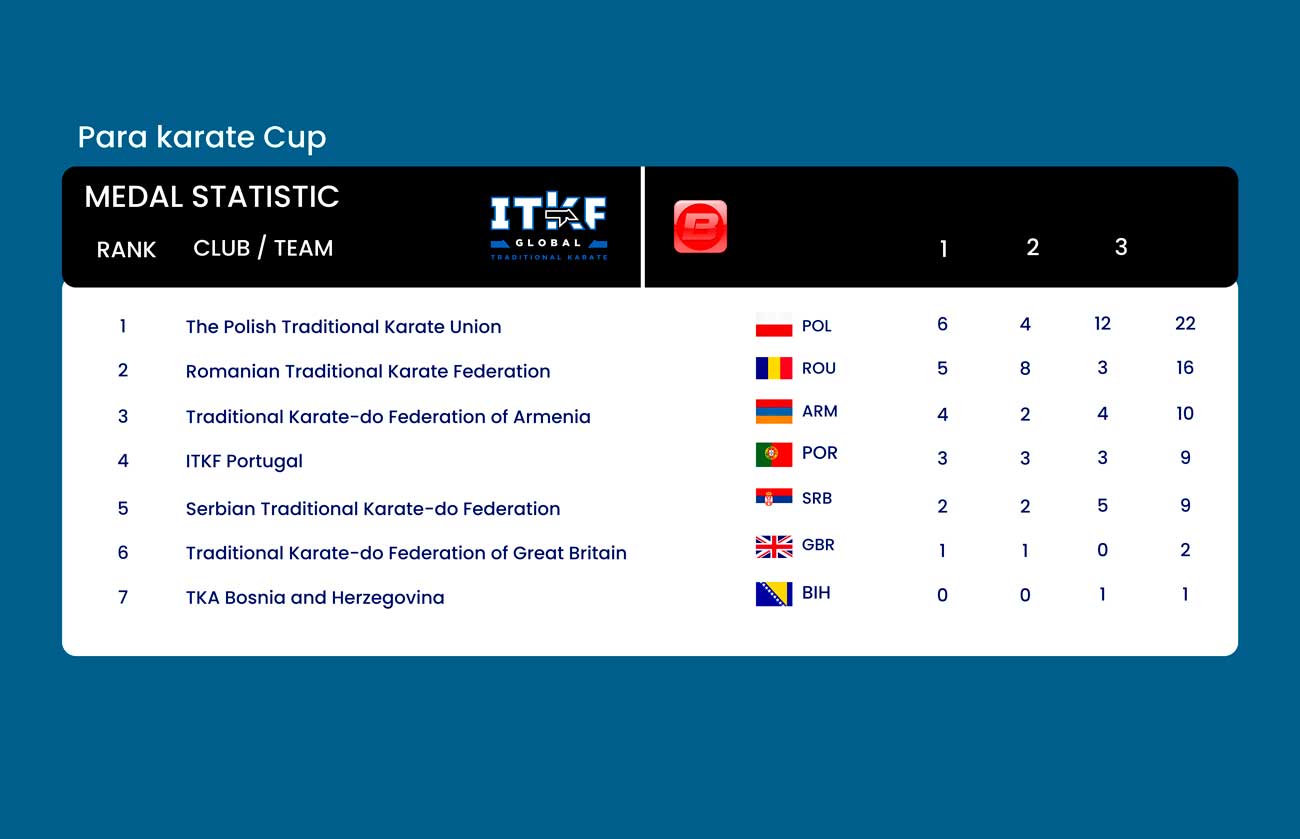
To close the 36th ITKF European Traditional Karate Championship, three key voices — Roman Pavlovič (ITKF Europe Chairman), Fernando Silva (European Vice-Chairman) and Gilberto Gaertner (ITKF Global Chairman) — shared their insights into the historic scope and technical, organizational and philosophical impact of the event.
“With great joy and optimism, we celebrate the extraordinary success of the 36th European Traditional Karate Championship, held in Kraljevo, Serbia, from October 20 to 26, 2025. The event reaffirmed the strength of our European community — united by camaraderie, growth and the pursuit of excellence.

Intense shiai kumite bouts animated the European Championship © STKF
This was the largest edition ever organized by ITKF Europe — a milestone in participation, technical depth and organizational scale. At the Ibar Sports Center, Serbia welcomed athletes of all ages — from the children of the 5th European Open to veterans and parakarate competitors — in an atmosphere of respect and enthusiasm rarely seen.”
Roman highlighted the exemplary work of the Serbian Traditional Karate Federation (STKF), whose hospitality and precise logistics set a new standard for continental events.
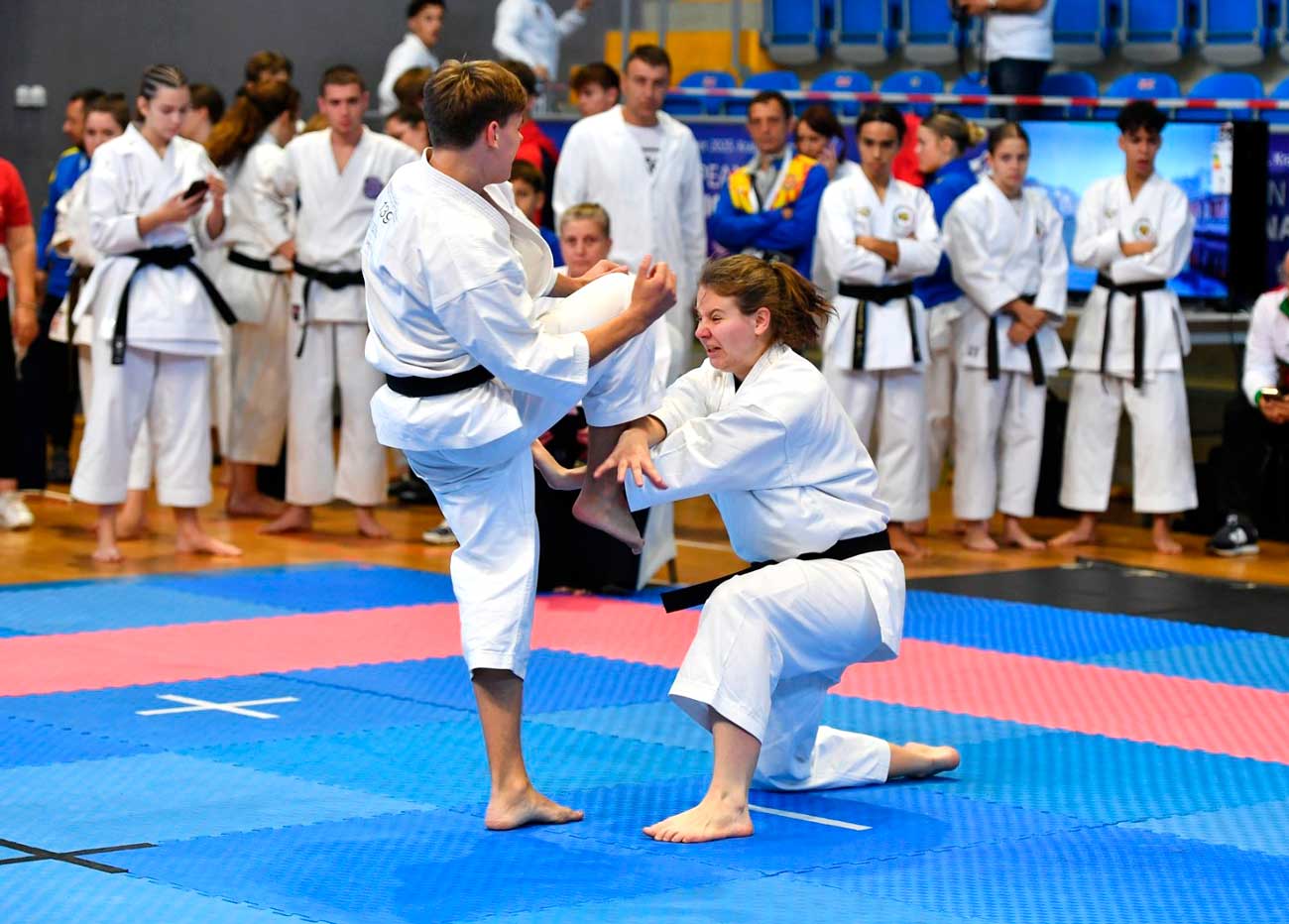
The realism of combat is one of the defining characteristics of ITKF Global traditional karate © STKF
He emphasized the integrated work of the technical, refereeing, medical, events and tournament committees, which guaranteed standardization, transparency and safety at all stages.
“More than a competition,” he said, “Kraljevo was the building of a community. We witnessed traditional karate in its purest form: respect, learning and shared joy. The friendships and lessons born here will shape our future.”
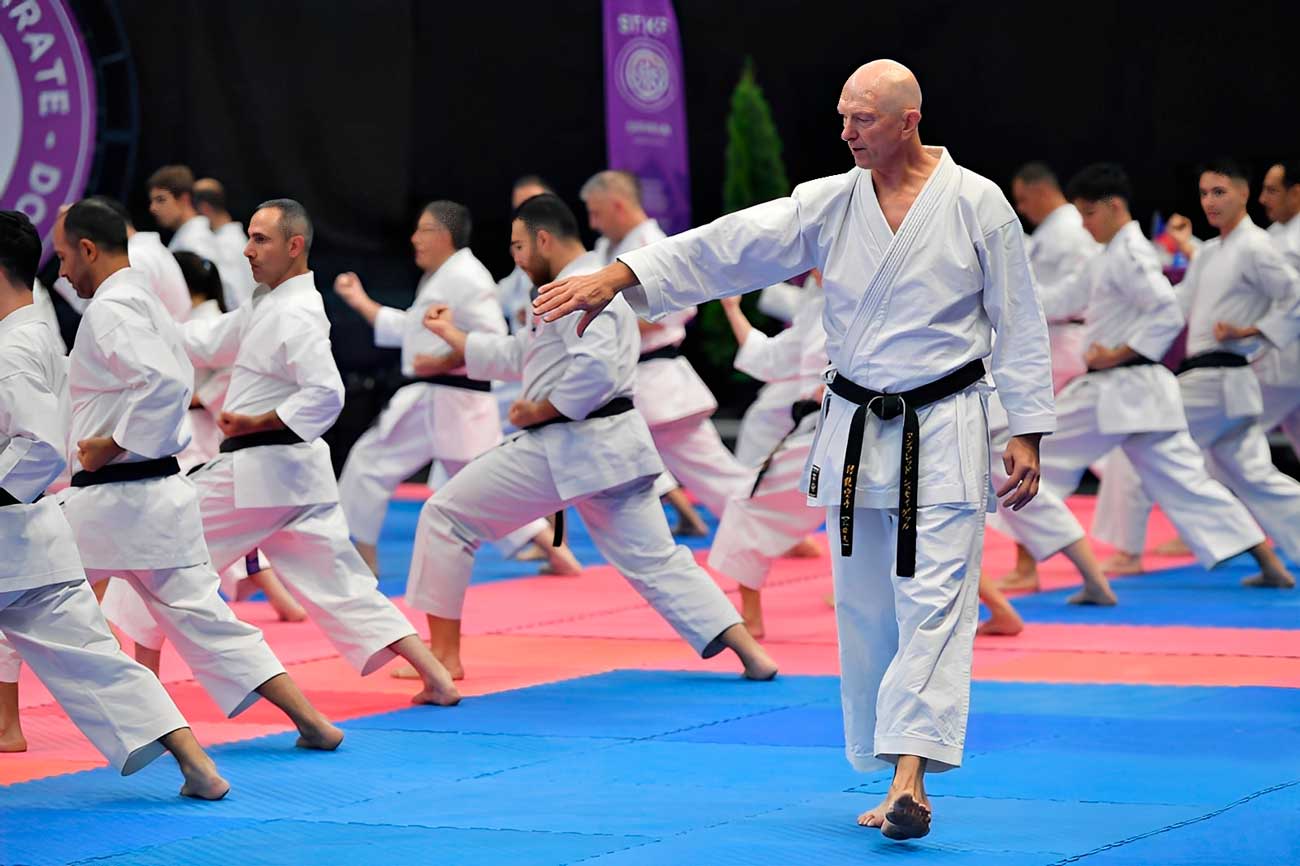
Technical course led by renowned German instructor sensei Manfred Schmoigl © STKF
With a forward-looking message, he concluded. “May the bonds created and the standards established in this edition guide us in the years ahead. Let this energy reach every dojo, every club, every country. We leave Kraljevo stronger, wiser and more united. Tradition continues.”
Among the international leaders present in Kraljevo, ITKF Europe Vice-Chairman and President of the Traditional Budō Federation of Portugal (FBTP), Fernando Silva, delivered a technically consistent and comprehensive report, highlighting the professionalism and hospitality that defined the 36th ITKF European Traditional Karate Championship.
“The organization demonstrated an exceptional level of professionalism, dedication and hospitality. Every stage — from logistics to the execution of the competition — was carried out with excellence,” he noted, emphasizing the decisive role of the Serbian Traditional Karate Federation (STKF) in creating a warm and respectful environment.
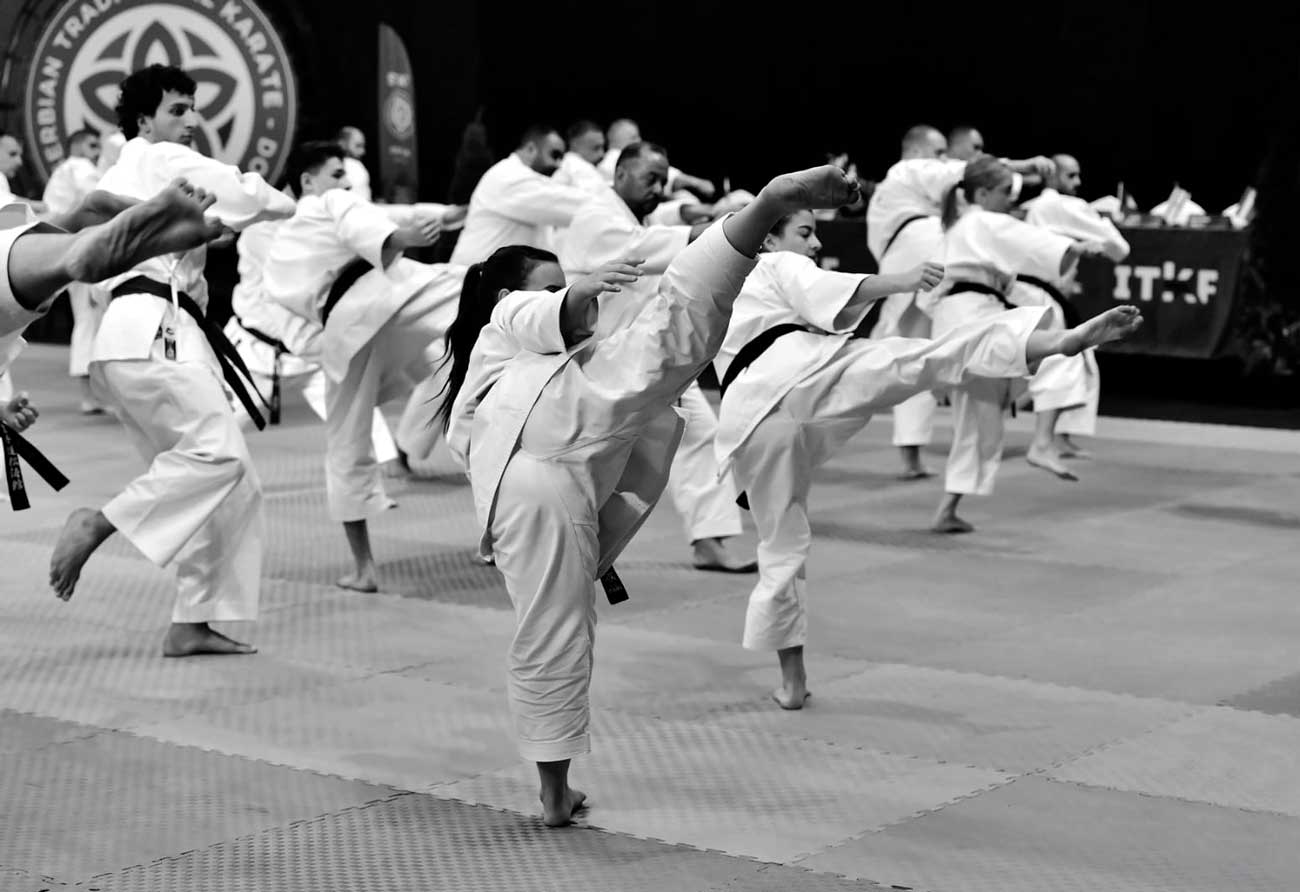
Technical course led by renowned German instructor sensei Manfred Schmoigl © STKF
Fernando also highlighted the symbolic gesture of the Kraljevo City Council, which officially received the delegations in the municipality’s ceremonial hall. “This gesture reinforced the spirit of friendship and unity that defines traditional karate and dignified the event in the eyes of all participants.”
In the days leading up to the championship, a Masters Course led by Manfred Schmoigl (Germany) and Cornel Musat (Romania) provided high-level technical and philosophical training. “The course was marked by knowledge-sharing and a collective search for improvement — a true expression of the traditional karate path,” he noted.
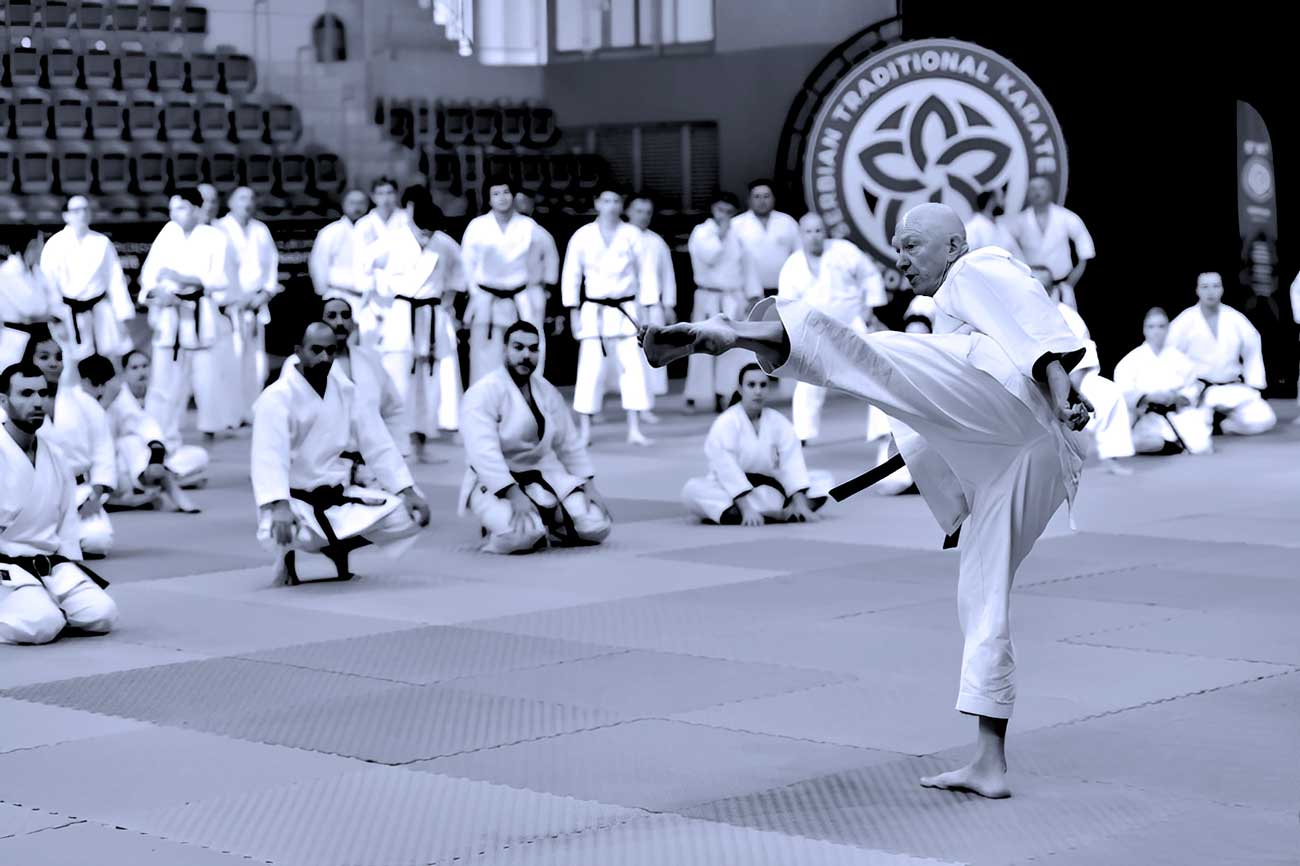
Sensei Manfred Schmoigl demonstrates advanced techniques during the European Championship technical course © STKF
Refereeing, under the leadership of sensei Dino Contarelli, President of the ITKF Global Refereeing Commission, also received praise. “With his habitual competence and attention to detail, sensei Contarelli reinforced the technical and ethical principles of ITKF refereeing, ensuring impartiality and excellence in every match.”
The opening ceremony, lasting more than an hour, showcased Serbian cultural expressions and traditional performances. “It was a beautiful and symbolic presentation, uniting tradition and hospitality in perfect harmony,” Fernando added.
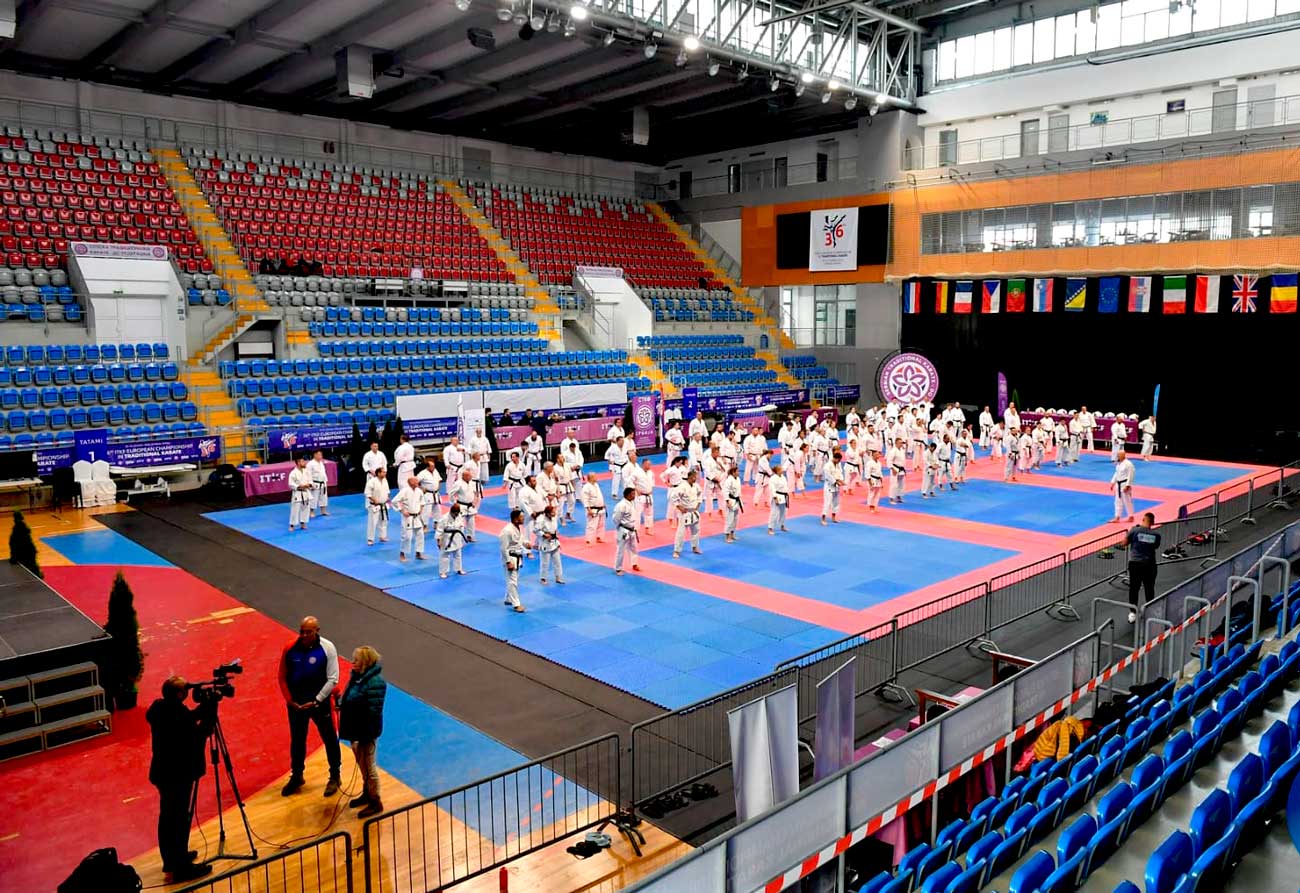
Technical course led by renowned German instructor sensei Manfred Schmoigl © STKF
In his overall assessment, the Portuguese leader emphasized the cohesion between technique, ethics and sporting spirit that characterized the entire championship. “The event faithfully reflected the principles of Budō — respect, friendship and shared learning — establishing itself as an example of organization and technical quality.”
Finally, he expressed gratitude to ITKF Europe and to the host organization. “My congratulations to the local organizing committee, to the City of Kraljevo for its warm reception, and to ITKF Europe for the excellence with which it guides the expansion of traditional karate across the continent.”
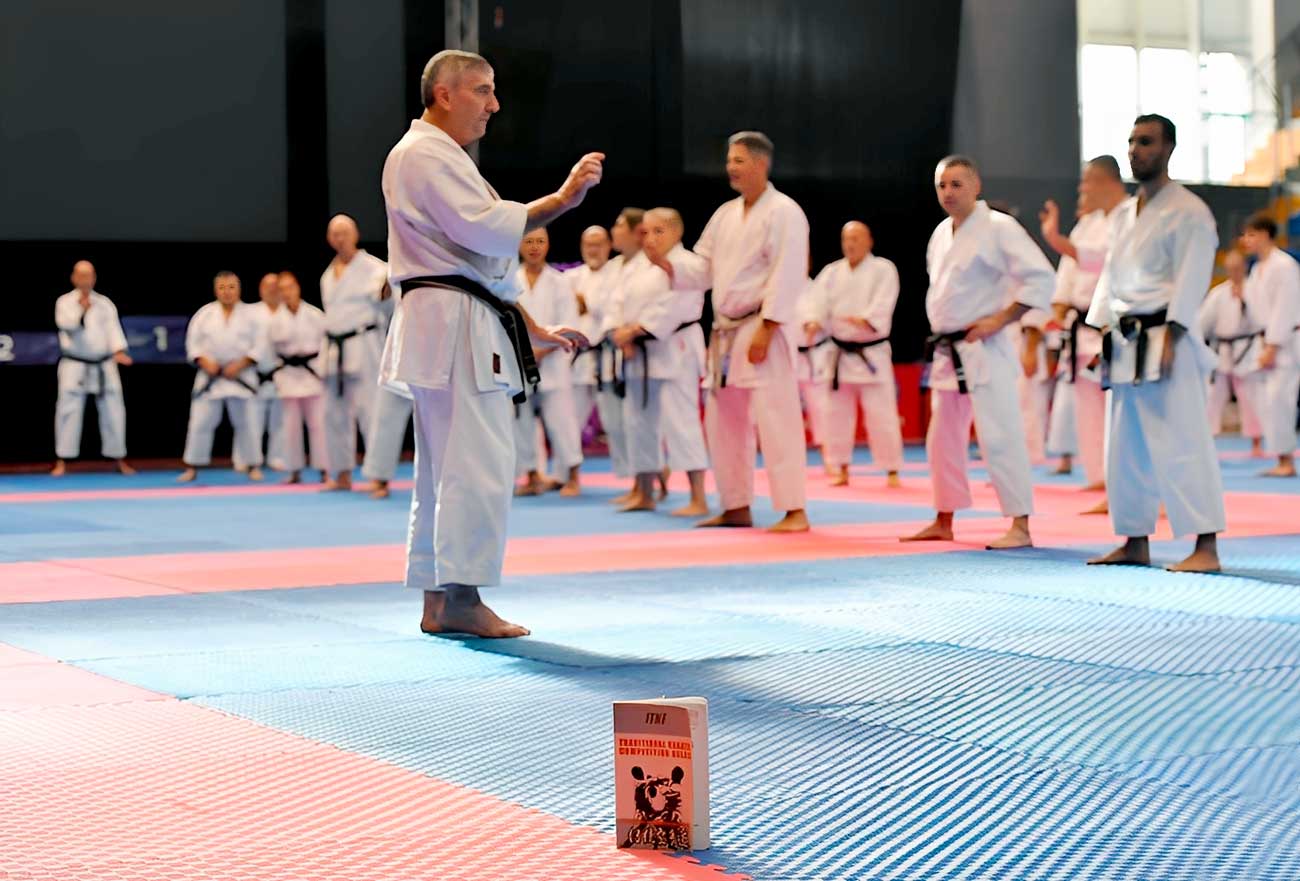
The European Master Course led by Italian sensei Eligio Contarelli, member of the ITKF Technical Committee © STKF
He concluded with a message that captured the essence of the event:
“This championship will remain in our memory as a milestone of growth, friendship and the reaffirmation of the true principles of karate-dō. Above all, it was a celebration of the human spirit and the strength of Budō.”
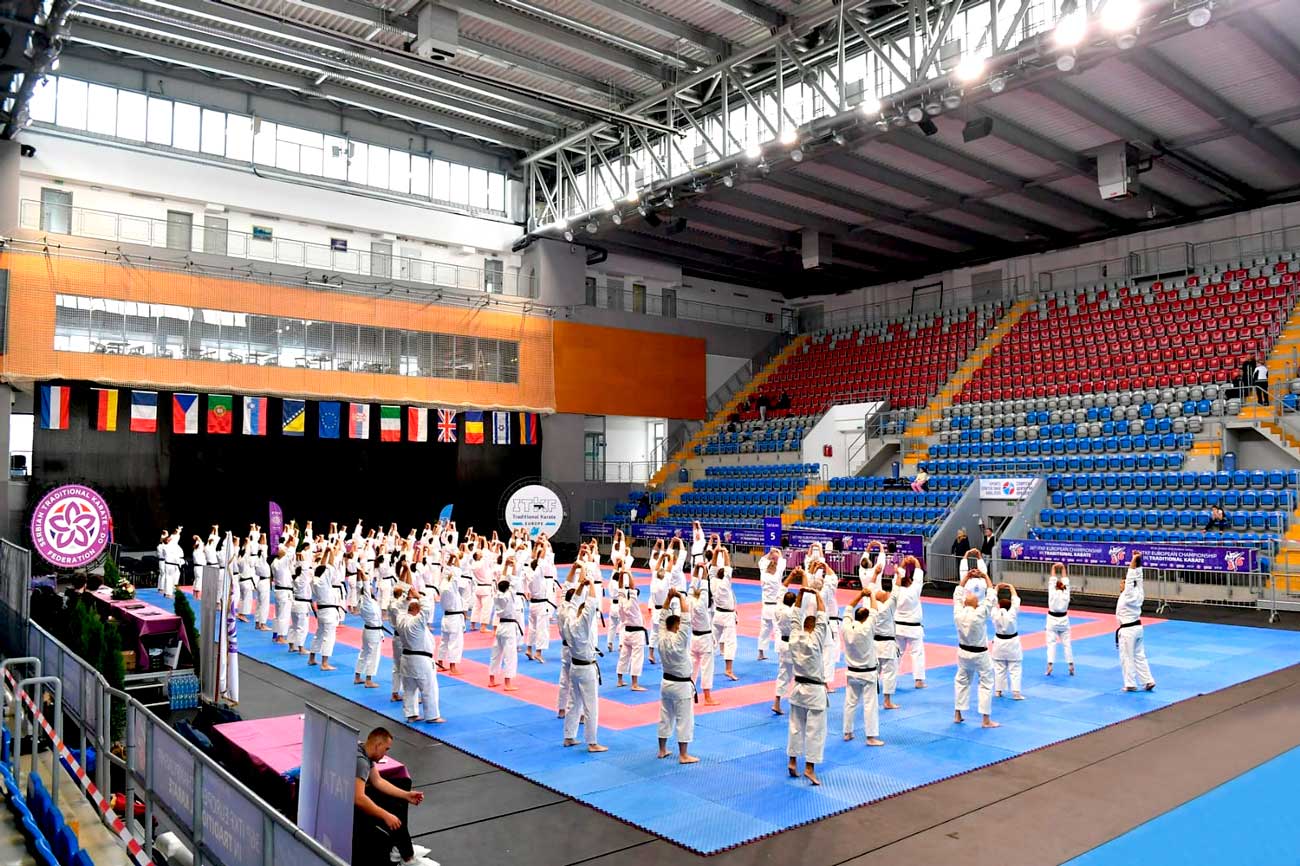
European Master Course © STKF
ITKF Global Chairman Professor Gilberto Gaertner celebrated the European edition as a milestone in the institutional and philosophical maturity of traditional karate on the continent.
“The work carried out in Kraljevo represents the meeting point of technique, culture and spirit — the pillars upon which traditional karate must remain grounded. What we witnessed was not merely a competition; it was the reaffirmation of a worldview in which sport becomes a tool for moral and human development,” he stated.
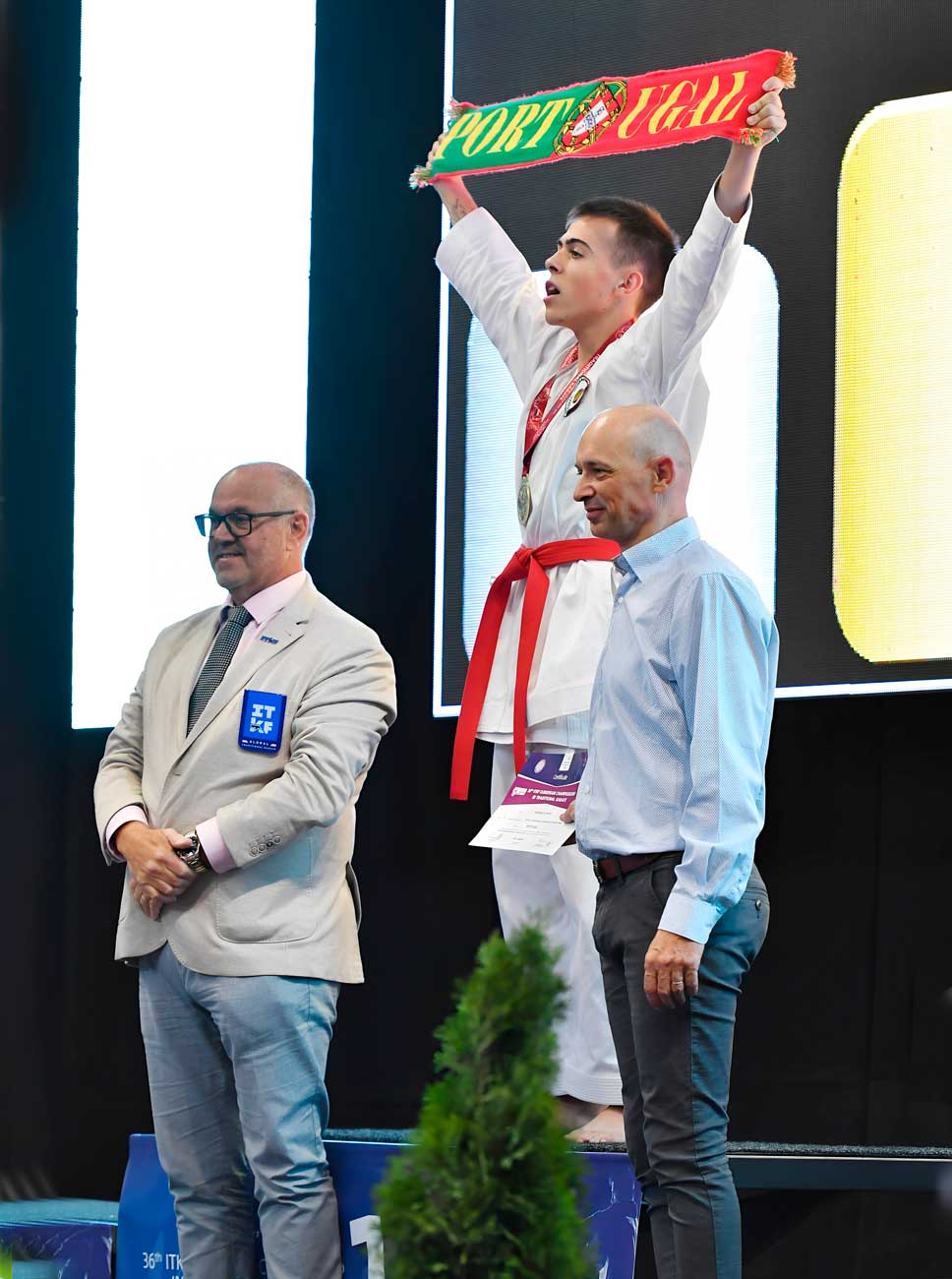
Fernando Silva, vice-president of ITKF, and Roman Pavlovič, president of ITKF Europe, lead the award ceremony honoring Portugal’s Francisco Pinto, the Para Karate champion © STKF
In his analysis, Gaertner emphasized the legacy built by the leadership of Roman Pavlovič and Zoran Jakovljević. “Europe shows that governance aligned with the philosophy of Budō transforms challenges into harmony and results into learning. The strength demonstrated by each participating nation confirms the power of an ITKF truly united around universal values.”
Reflective in tone, he concluded:
“Tradition lives on when spirit rises above form. Kraljevo showed the world that traditional karate does not belong to a single time or place — it belongs to all who practice it with pure heart, awakened mind and a shared purpose. This is the path that will lead us into the future.”
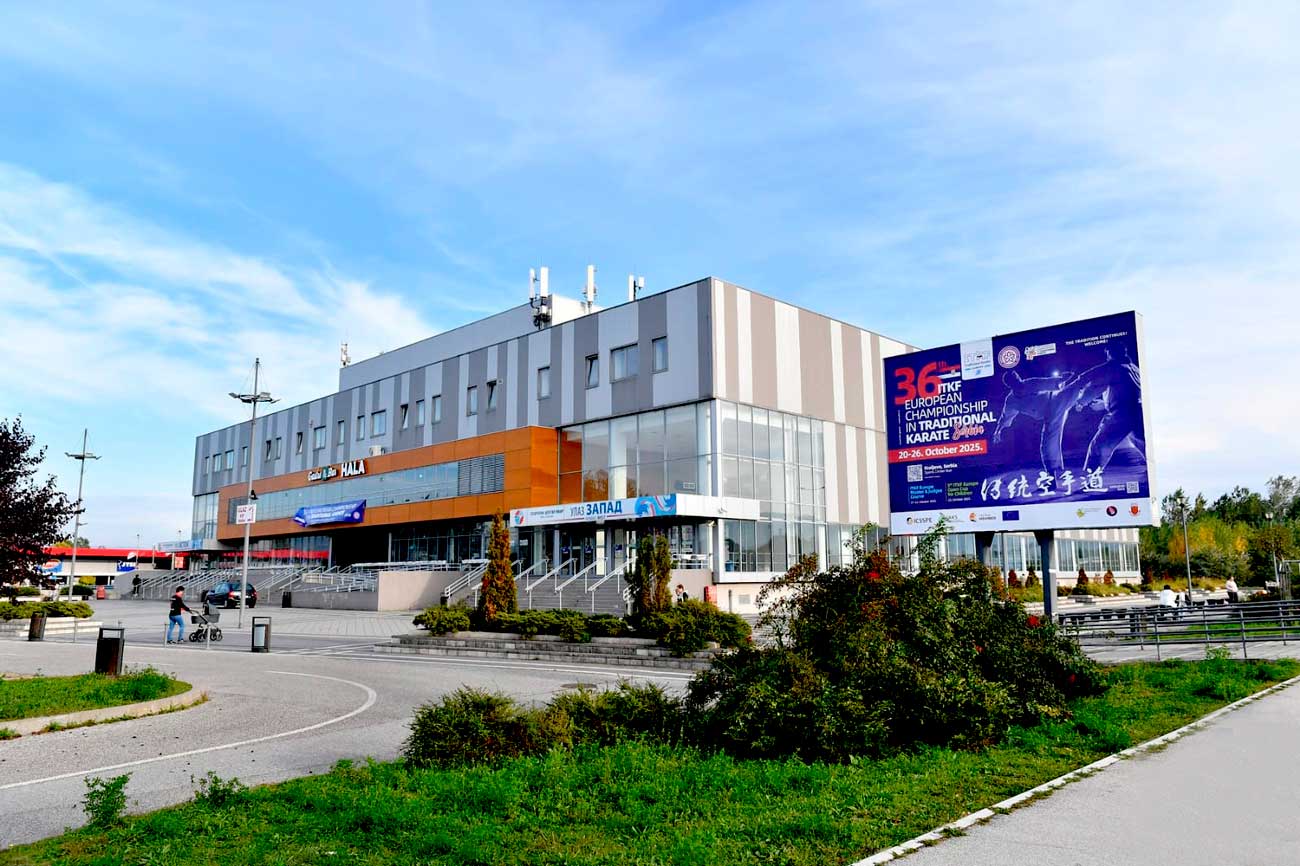
Exterior view of the Ibar Sports Center © STKF
In his closing message, Professor Gaertner emphasized that the true legacy of traditional karate is not measured solely by medals, but by its ability to transform individuals and nations through the principles at the core of Budō.
“To see Europe united around traditional karate is to witness that tradition remains alive — not as a memory of the past, but as a guiding force for the present,” he affirmed. “Each championship, each course, each technical gathering strengthens the bond between body and spirit, between technical training and moral purpose.”
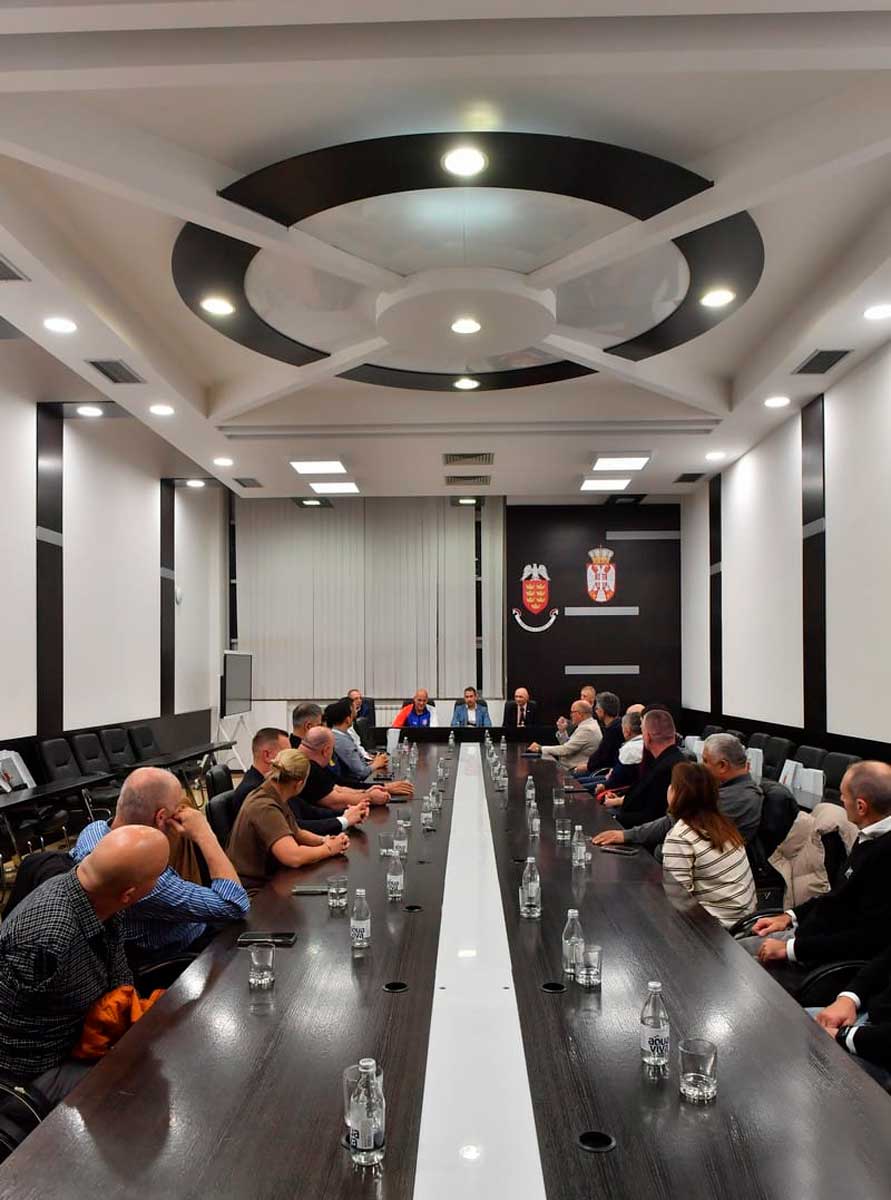
Meeting at the Kraljevo City Hall hosted by Deputy Mayor Miloš Simović © STKF
Gaertner underscored that the growth of ITKF Europe under Pavlovič’s stewardship and the commitment of the national federations mark an important chapter in the ethical and philosophical reconstruction of the modality on the continent. “What we witnessed in Kraljevo confirms that traditional karate has reclaimed its rightful place — the place of authenticity, honor and respect.”
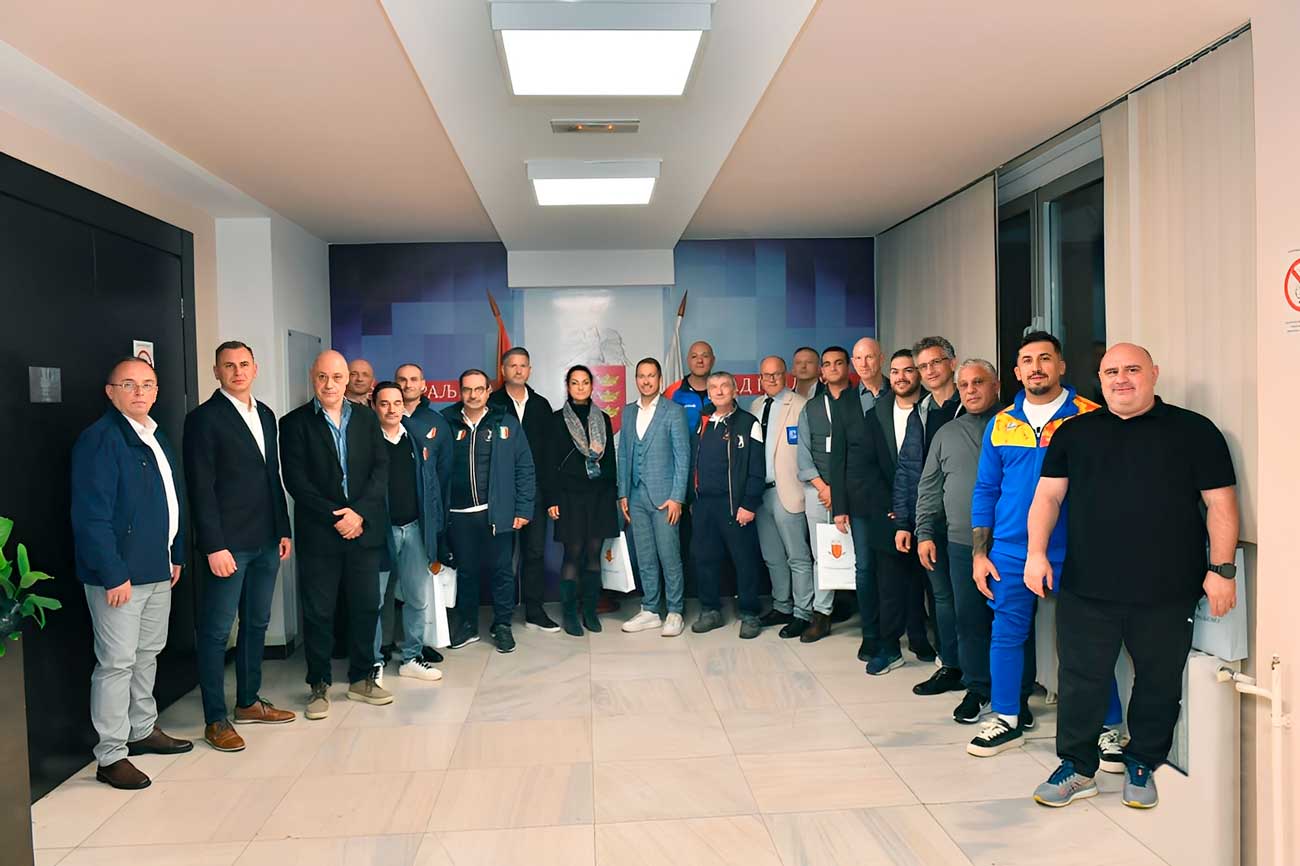
ITKF leaders during the meeting held at Kraljevo City Hall © STKF
Regarding Serbia’s contribution and the exemplary work of the STKF, he stated unequivocally:
“The Serbian leadership demonstrated that organization and spirituality can move together. The event was impeccable — but above all, it was profoundly human. And it is this human dimension that distinguishes true karate-dō.”
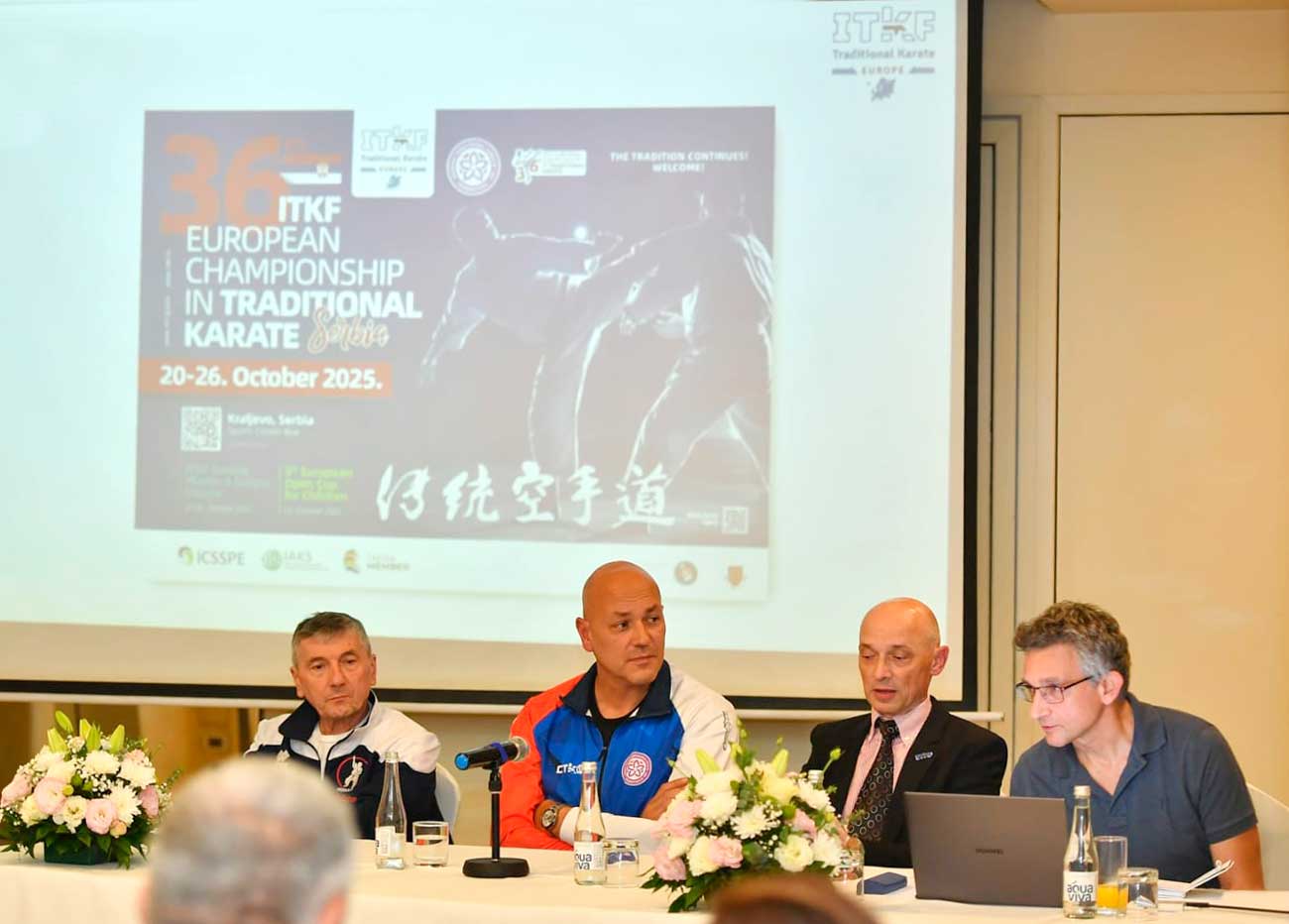
Technical Congress gathers coaches and officials to define competition protocols © STKF
He concluded with a reflection that captures the essence of the movement he leads: “Traditional karate is a path of equilibrium. When we preserve tradition, we are not looking backward — we are looking inward. From that center, from the heart of the practice, arises the strength that unites continents, generations and human beings. This is the spirit of the ITKF at this moment: tradition in motion.”
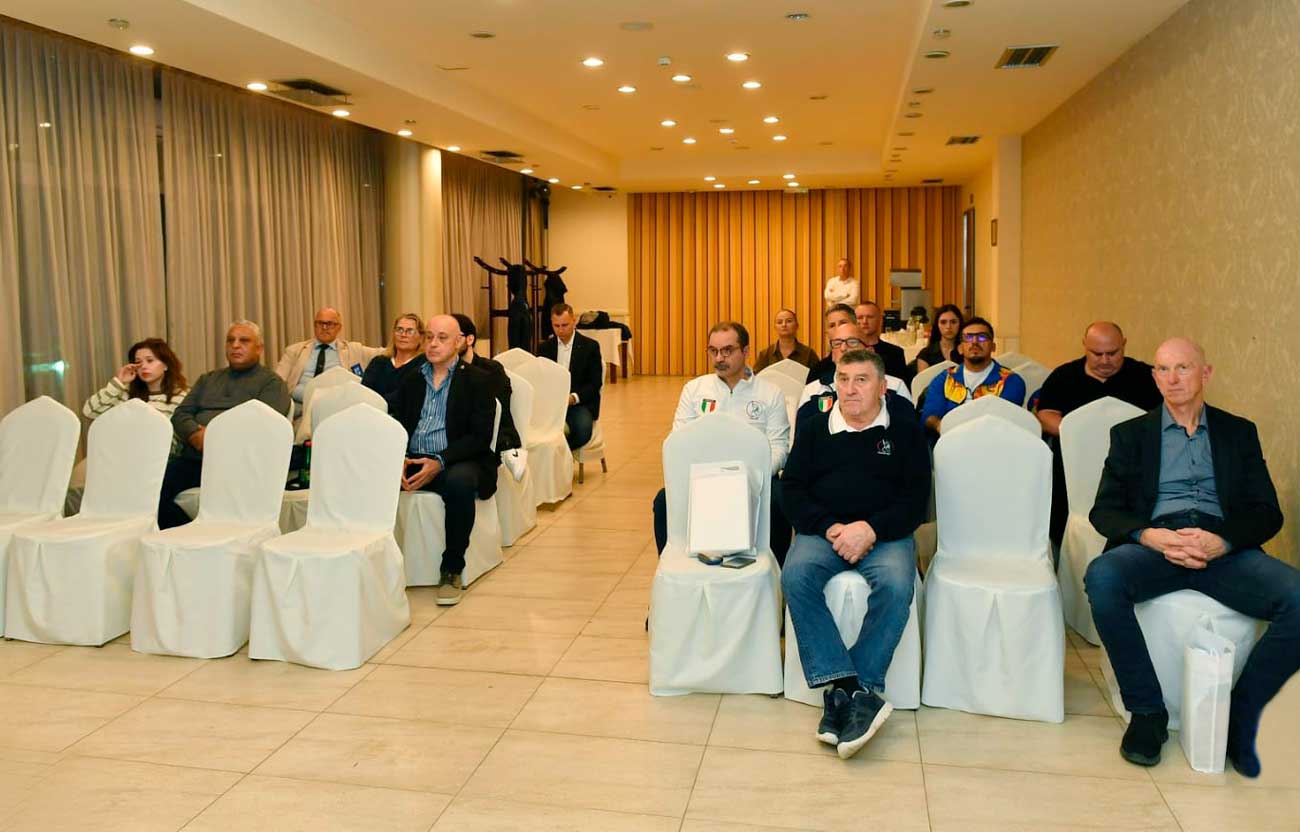
ITKF Europe General Assembly © STKF

14 de fevereiro de 2026
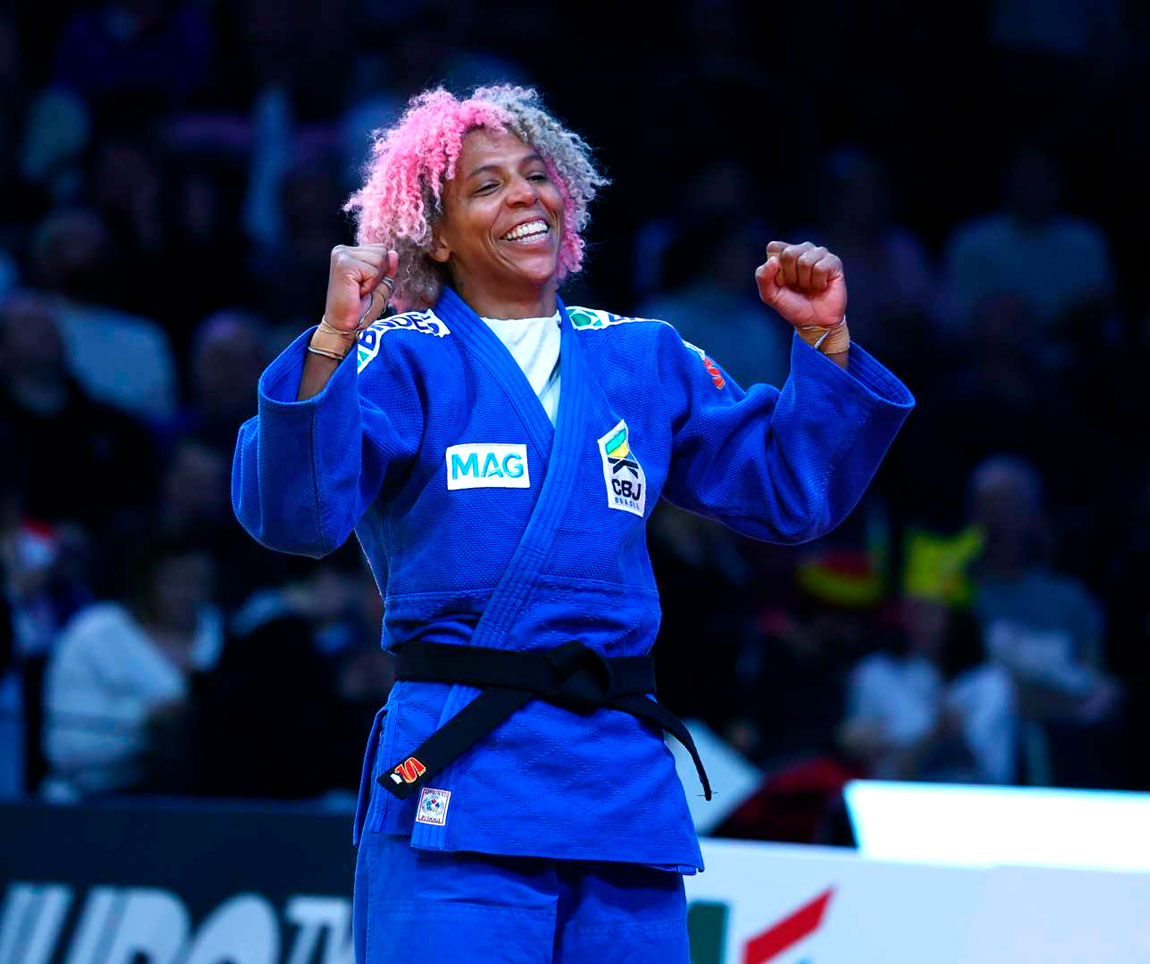
08 de fevereiro de 2026
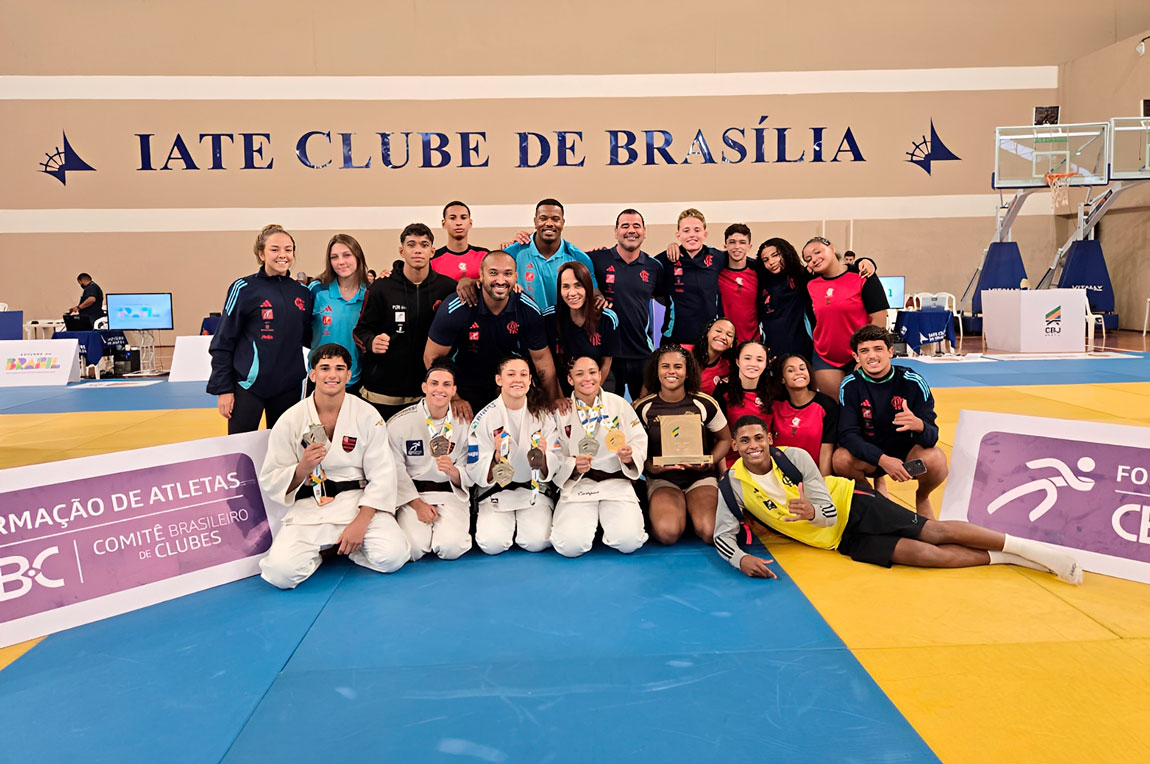
07 de fevereiro de 2026